1. Red patches of skin covered with silvery scales
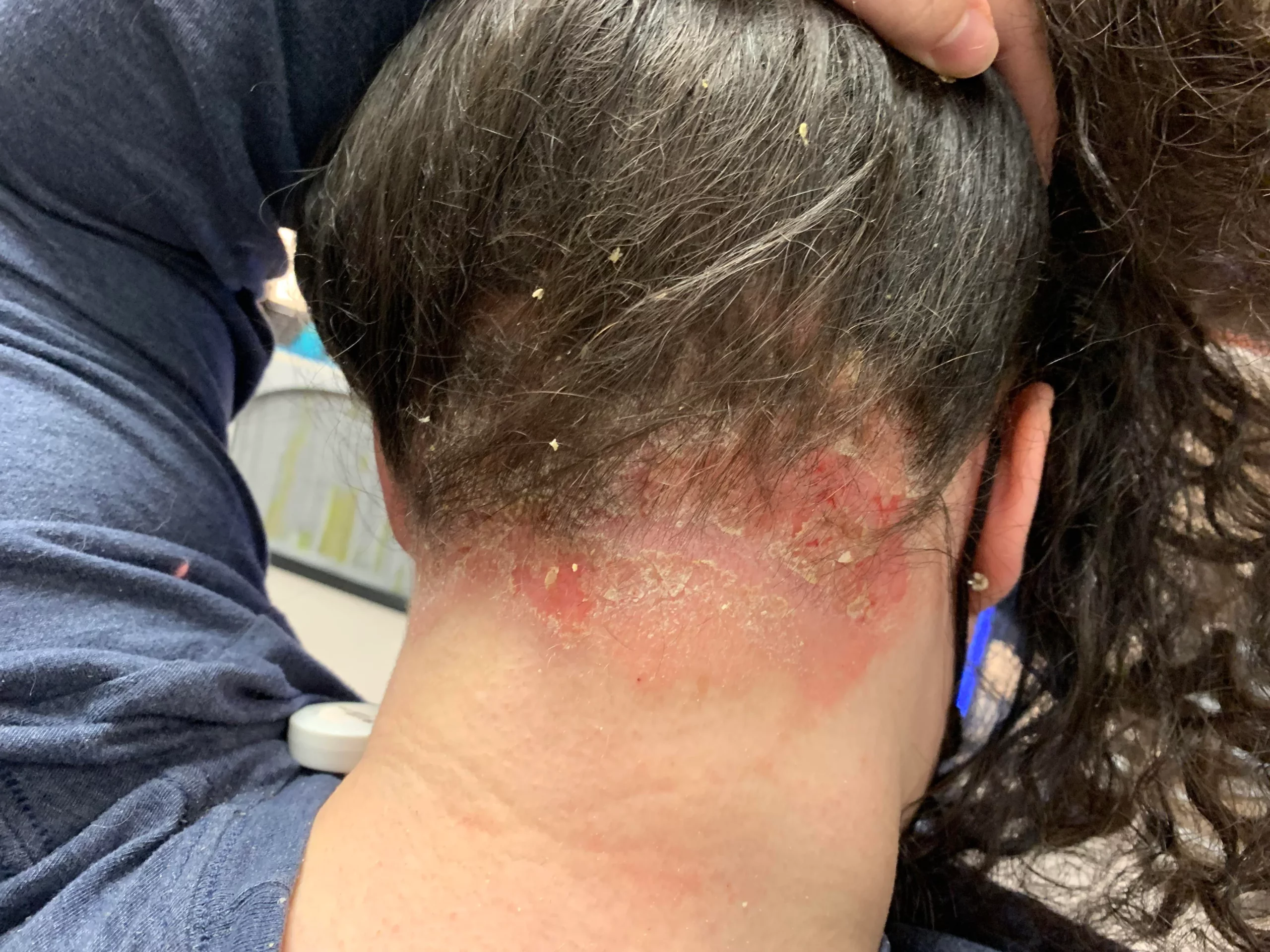
Image Source: Reddit
Psoriasis often presents as red, inflamed patches of skin covered with thick, silvery scales. These patches, known as plaques, can be itchy and painful, leading to discomfort and irritation. This is the most obvious and common warning sign of psoriasis. However, it is also confused with eczema.
2. Dry, cracked skin that may bleed
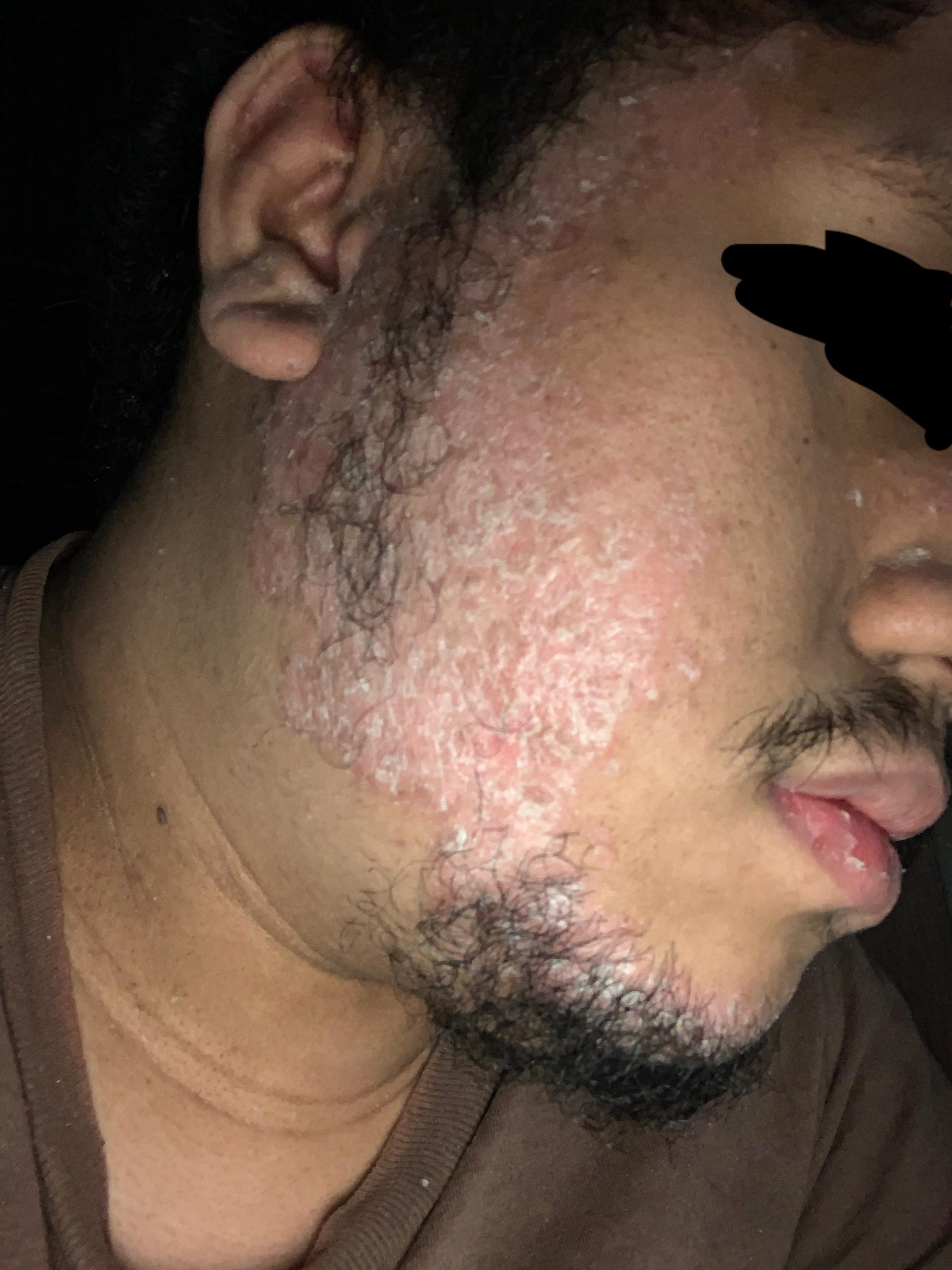
Image Source: Reddit
The affected areas of skin in psoriasis can become dry and cracked, sometimes leading to bleeding. This occurs due to the excessive shedding of skin cells and the compromised skin barrier function characteristic of psoriasis. Again, like the previous point, this is also a very common sign.
3. Thickened, pitted, or ridged nails
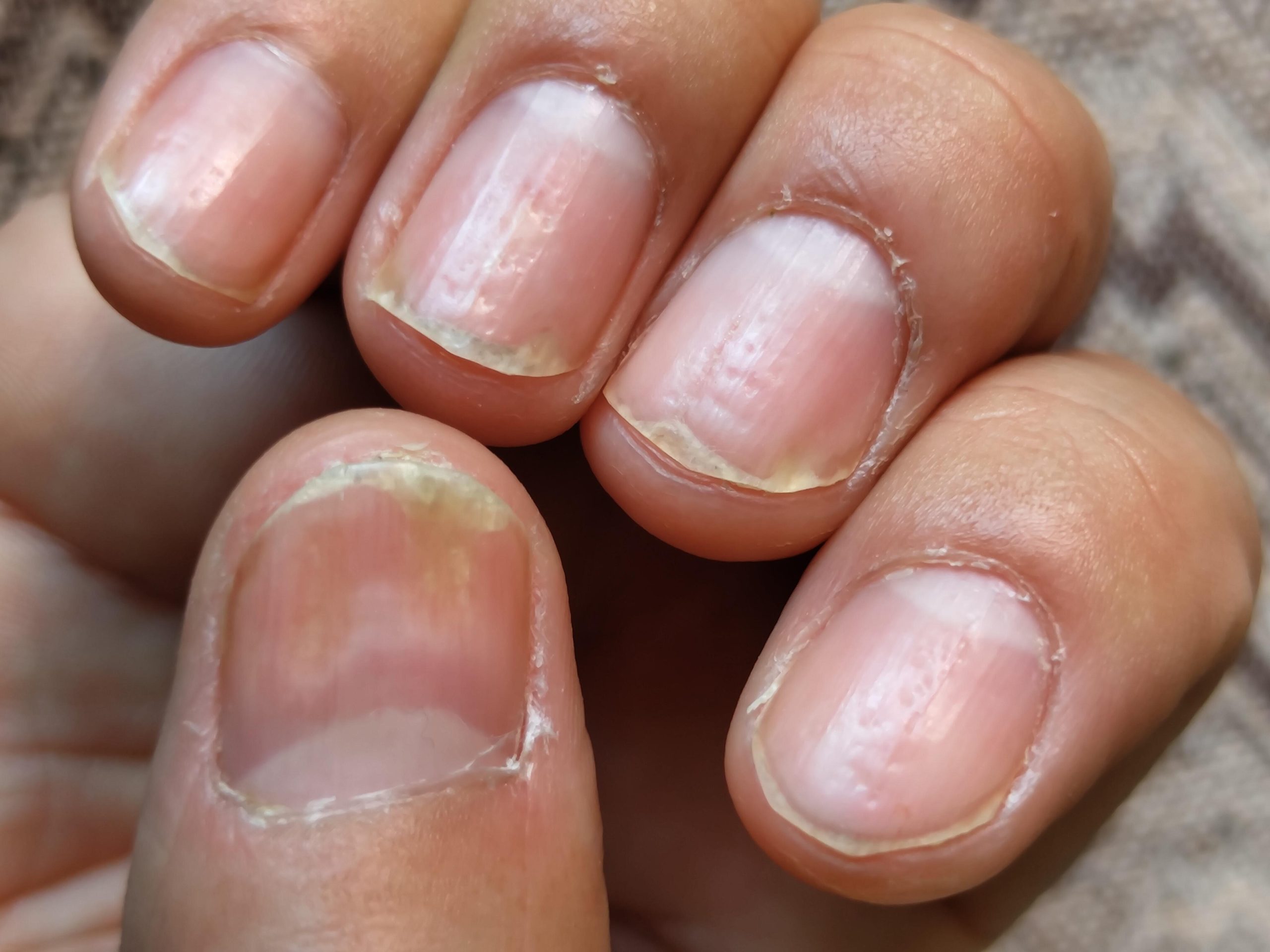
Image Source: Reddit
Psoriasis can affect the nails, causing them to become thickened, pitted, or ridged. Nail changes are common in psoriasis and may accompany skin symptoms, contributing to functional and aesthetic concerns. Not many people are aware of this sign but is is very telling.
4. Joint pain and swelling (psoriatic arthritis)
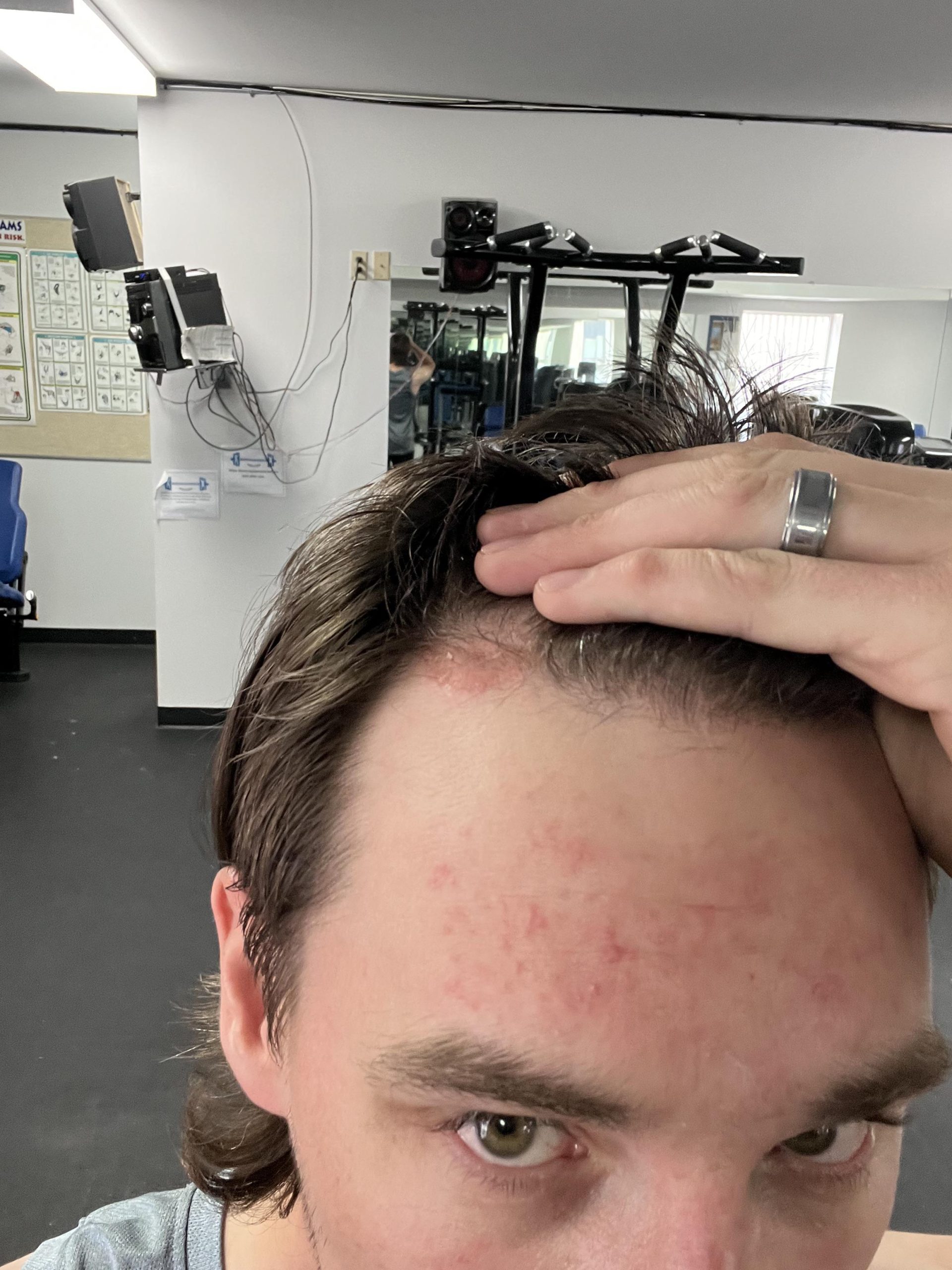
Image Source: Reddit
Psoriatic arthritis is a common complication of psoriasis, characterized by joint pain, stiffness, and swelling. This inflammatory arthritis can affect any joint in the body, leading to impaired mobility and reduced quality of life. Please be aware and seek medical attention if this happens.
5. Itchy or burning sensation on the skin
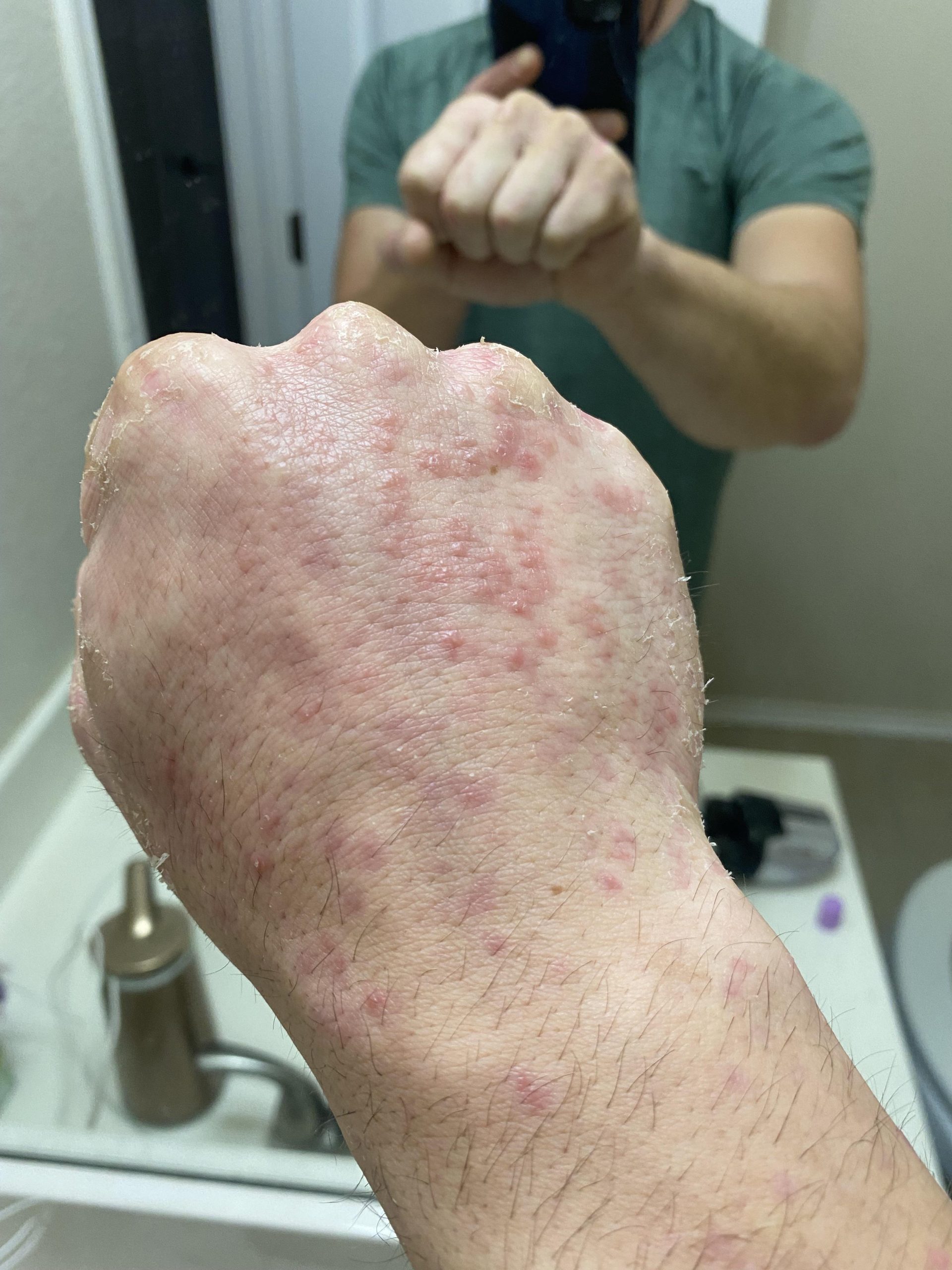
Image Source: Reddit
Psoriasis lesions can cause itching or burning sensations, adding to the discomfort experienced by individuals with the condition. The itchiness may vary in intensity and can be exacerbated by factors such as stress or dry weather. This is a side effect of the first point, the dry skin leads to itchiness.
6. Soreness or tenderness in affected areas
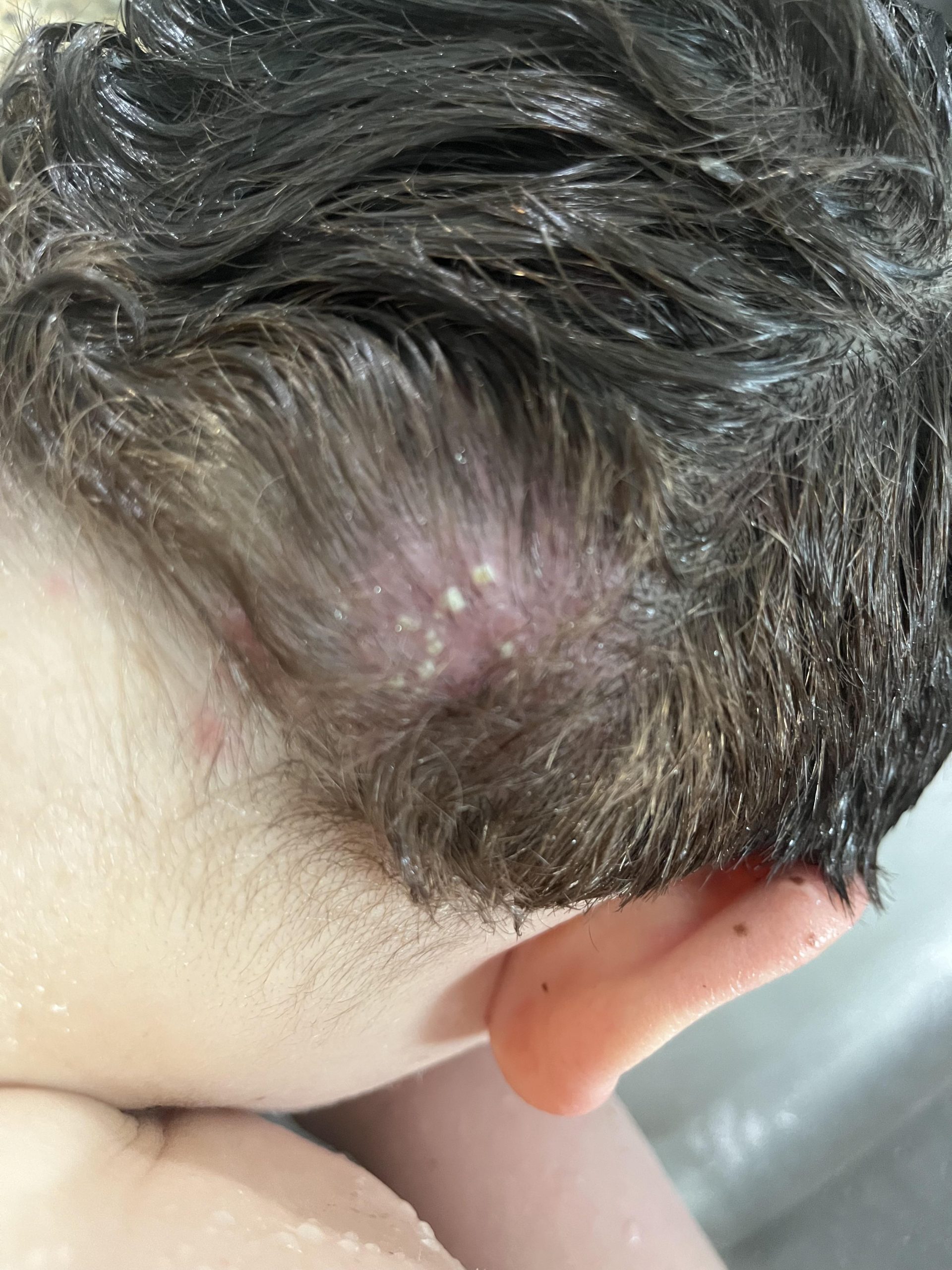
Image Source: Reddit
Psoriasis plaques can be sore or tender to the touch, especially during flare-ups or when the skin is irritated. This soreness can interfere with daily activities and may worsen with friction or pressure on the affected areas. Itching can lead to this problem as well as dry areas of skin.
7. Small scaling spots (guttate psoriasis)
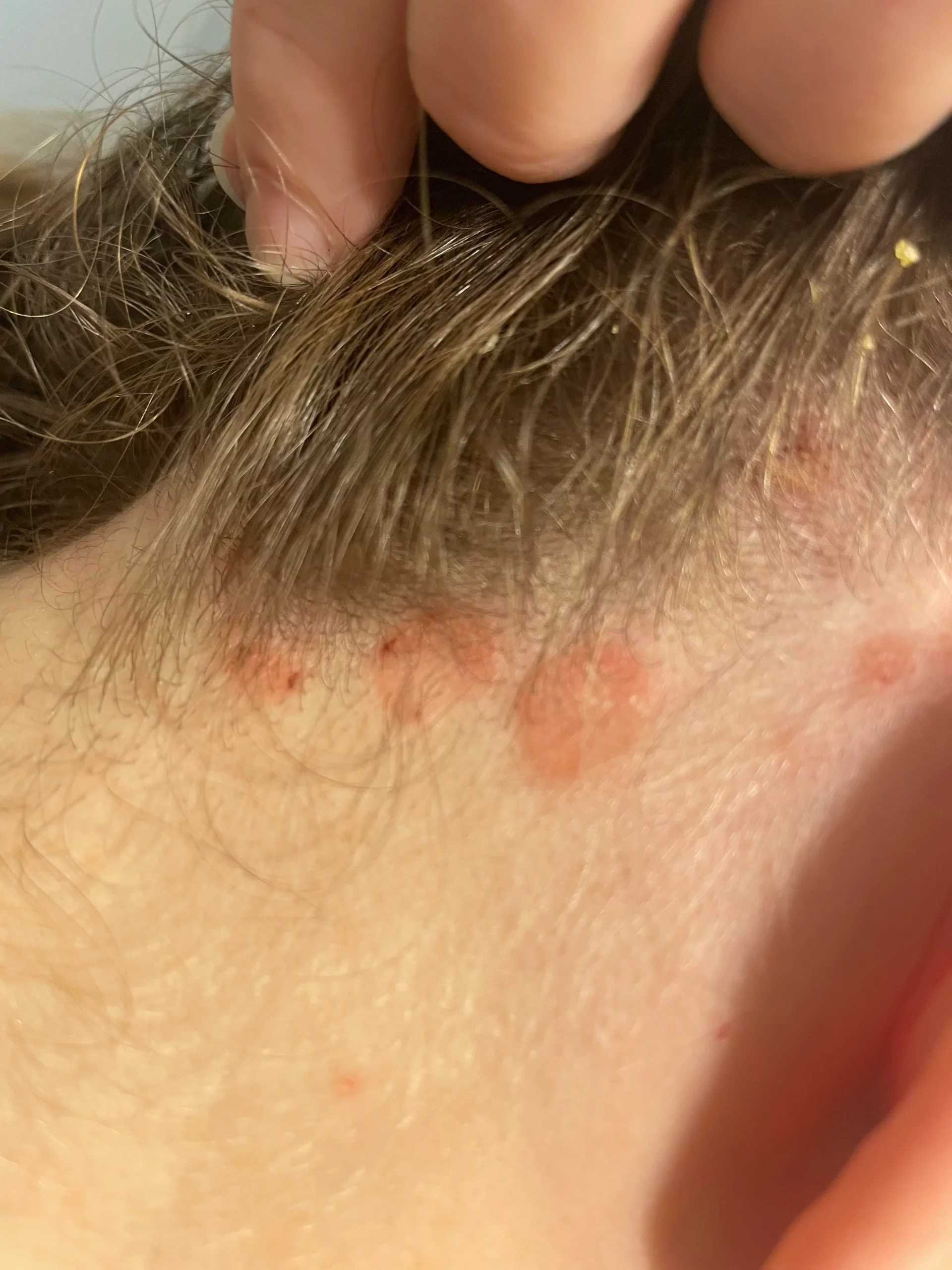
Image Source: Reddit
Guttate psoriasis is a type of psoriasis characterized by small, drop-like lesions that appear on the skin. These spots may be pink or red in color and are often accompanied by a dreaded itching or discomfort. This is just another form of psoriasis to keep an eye for.
8. Inflammation and redness around the scales
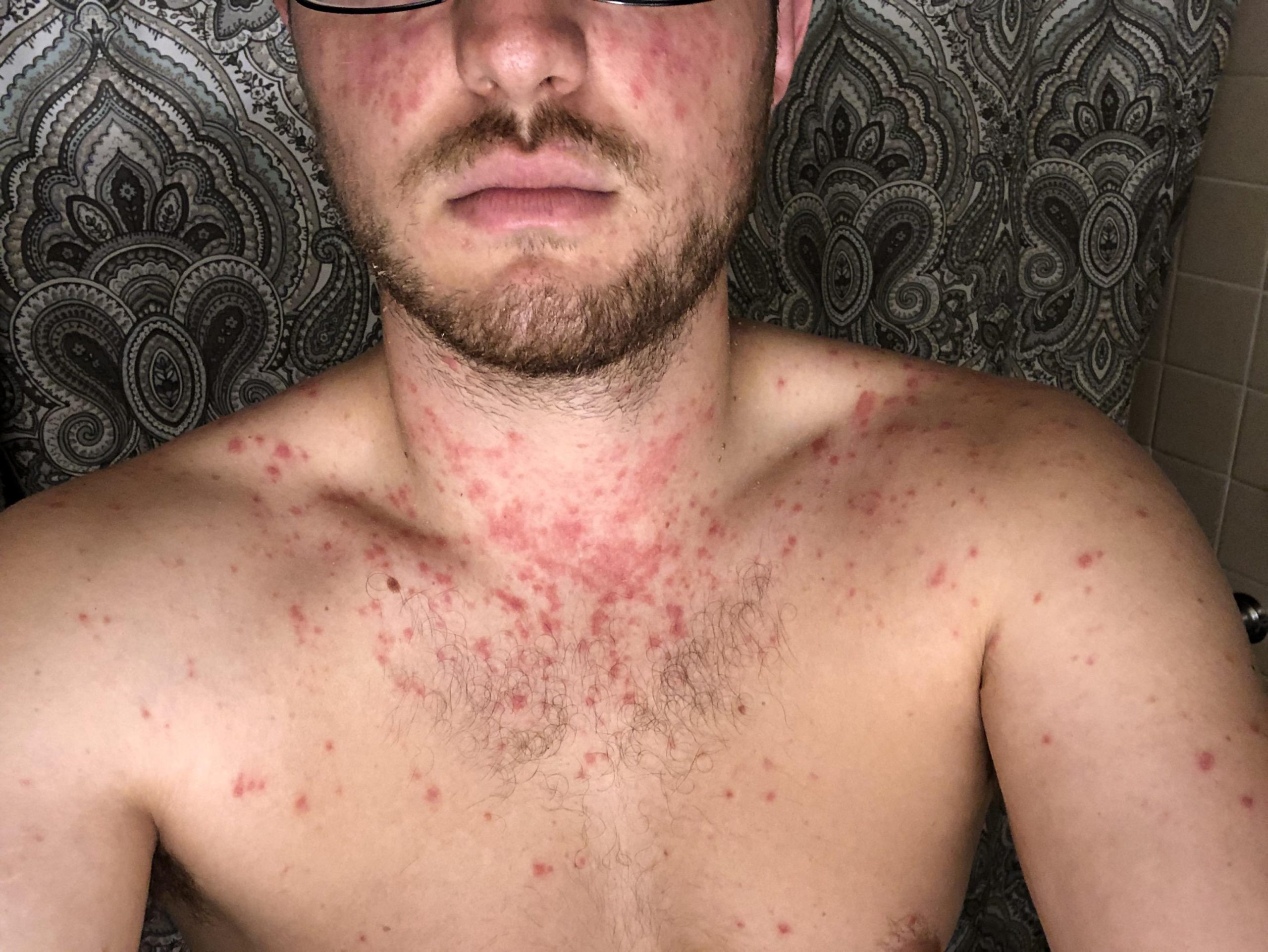
Image Source: Reddit
The skin surrounding psoriasis scales may appear inflamed and red, indicating active inflammation in the affected area. This inflammation contributes to the characteristic appearance of psoriasis plaques and can be exacerbated by many various triggers.
9. Scalp psoriasis (scaling on the scalp)
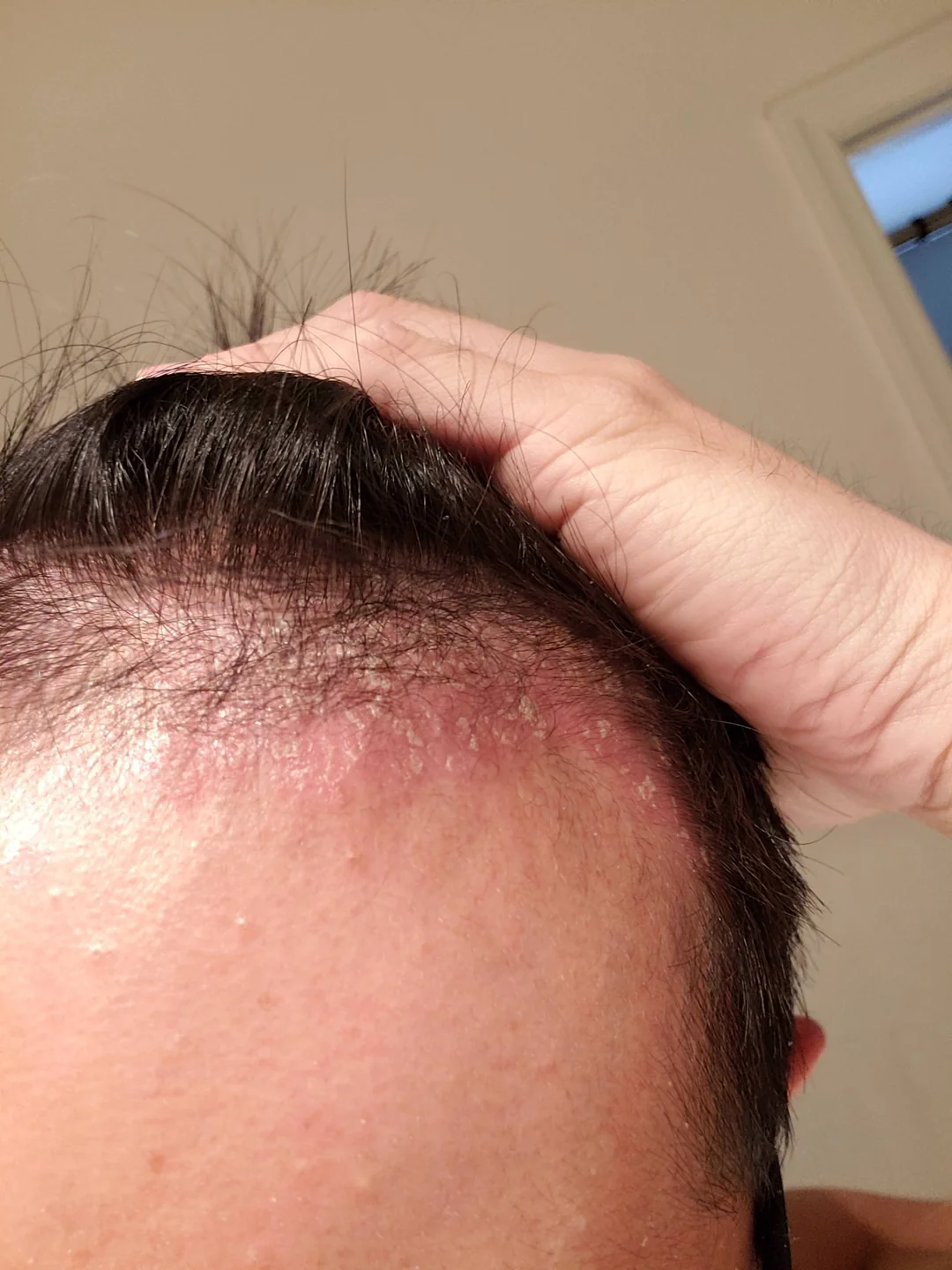
Image Source: Reddit
Psoriasis can affect the scalp, causing scaling, itching, and redness. Scalp psoriasis may extend beyond the hairline onto the forehead, neck, or ears, leading to visible discomfort and aesthetic concerns. This is a very common area for psoriasis to arise. Itching can lead to bleeding.
10. Thickened patches of skin with silvery scales (plaque psoriasis)
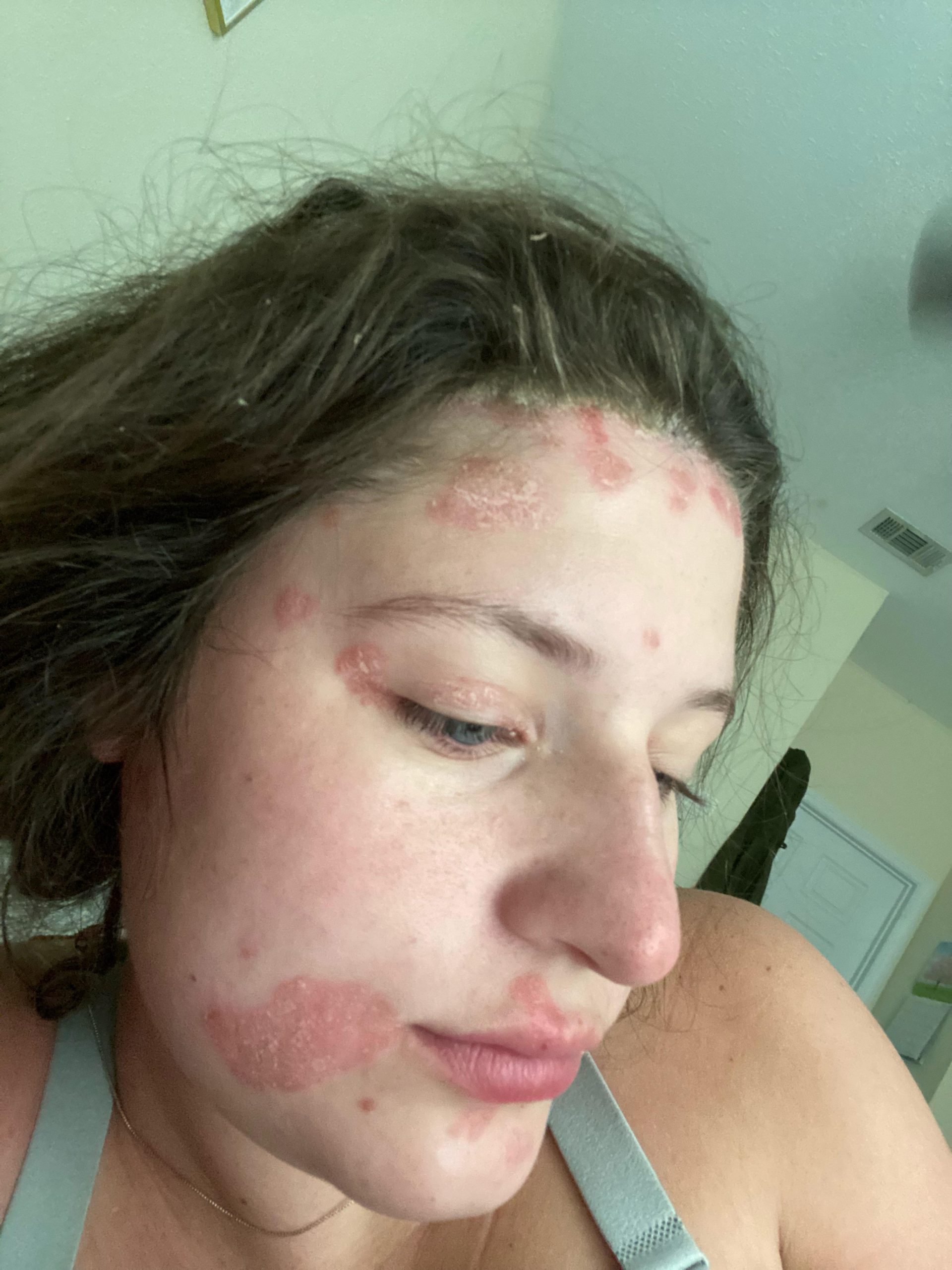
Image Source: Reddit
Plaque psoriasis is the most common form of psoriasis, characterized by thickened patches of skin covered with silvery scales. These plaques can vary in size and severity, often occurring on the elbows, knees, scalp, and lower back. Please be aware of this symptom.
11. Pain or discomfort during movement
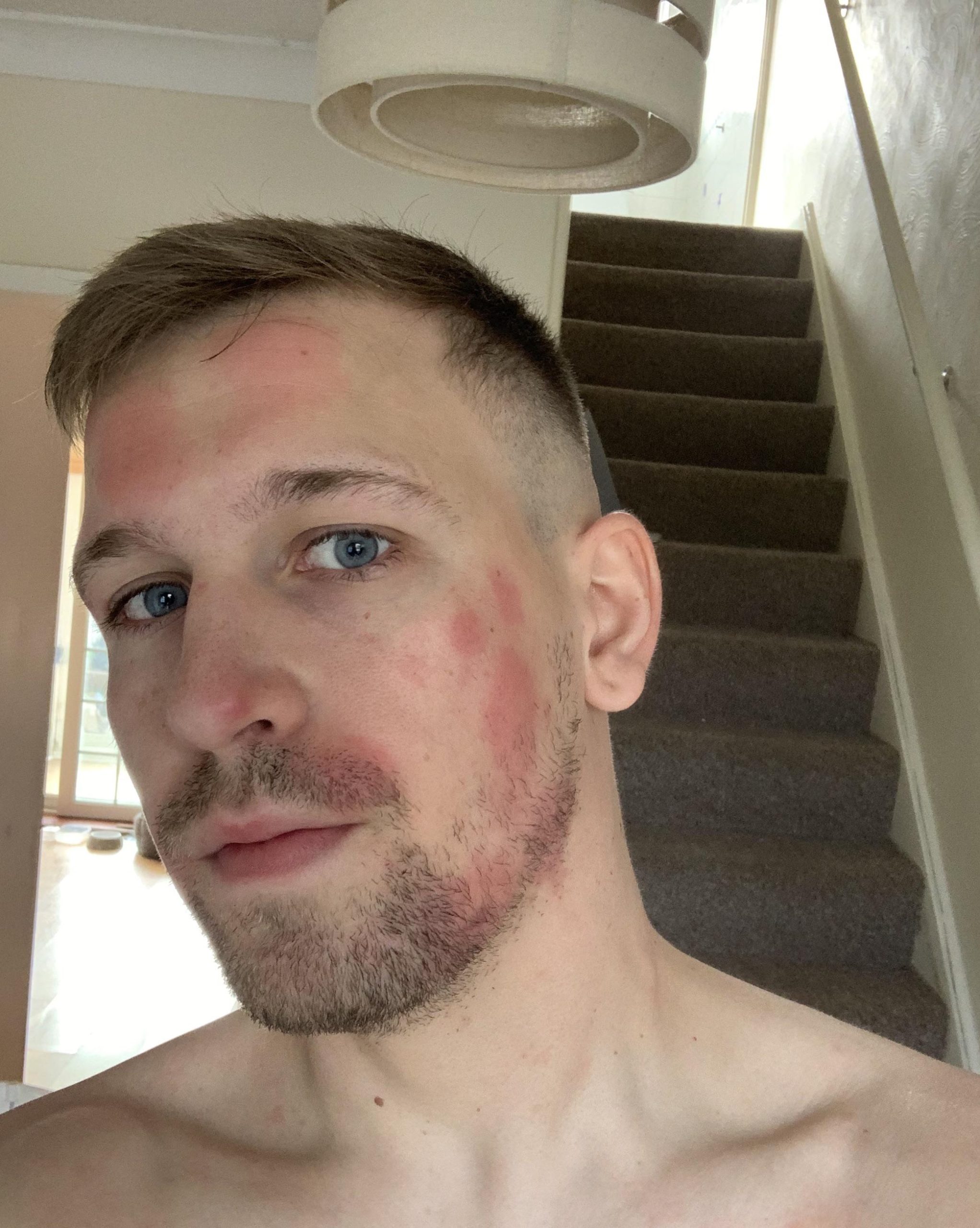
Image Source: Reddit
Psoriatic arthritis, a common complication of psoriasis, can cause pain and discomfort during movement. This pain may be localized to specific joints or affect multiple joints throughout the body, impairing mobility and function. This can be due to achy joints as well as irritated skin.
12. Discoloration of the nails (yellow-brown)
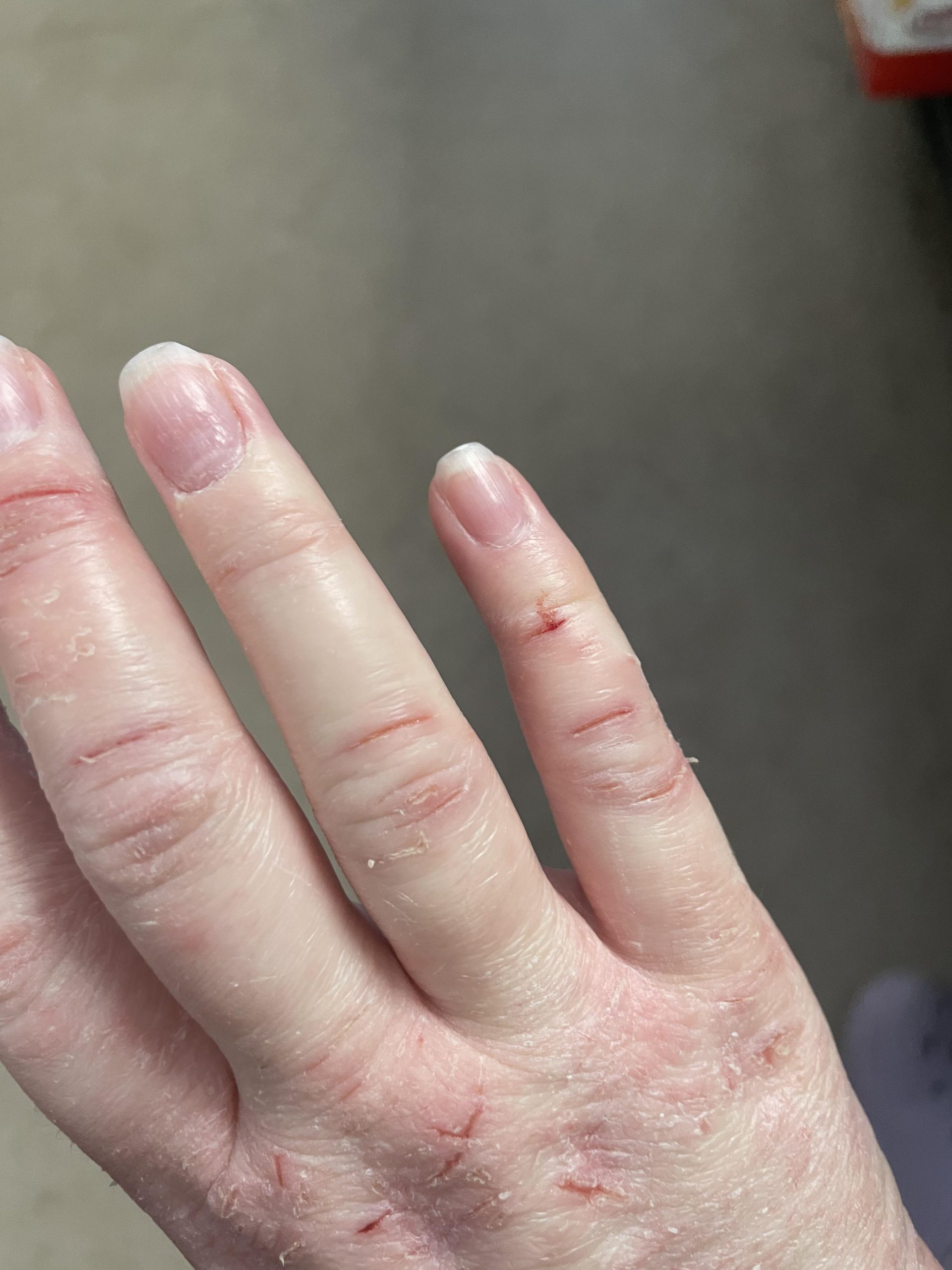
Image Source: Reddit
Psoriasis can cause discoloration of the nails, with affected nails appearing yellow-brown in color. Nail changes are common in psoriasis and may include pitting, ridges, or separation of the nail from the nail bed. This is likely due to an affected blood flow.
13. Difficulty sleeping due to itching or discomfort
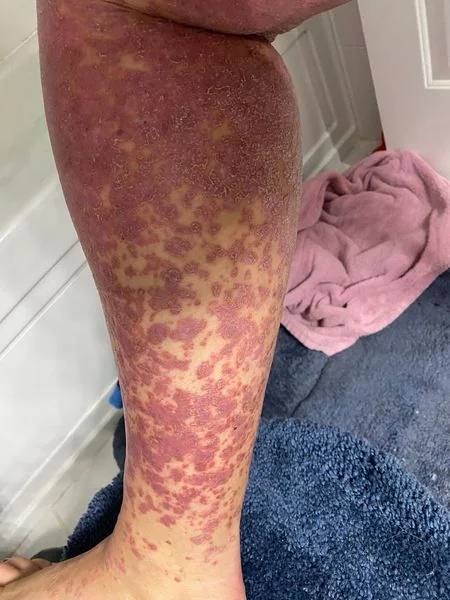
Image Source: Reddit
The itching and discomfort associated with psoriasis can interfere with sleep, leading to difficulty falling asleep or staying asleep. This sleep disruption can really exacerbate fatigue and impair overall quality of life especially for individuals with psoriasis.
14. Emotional distress or depression
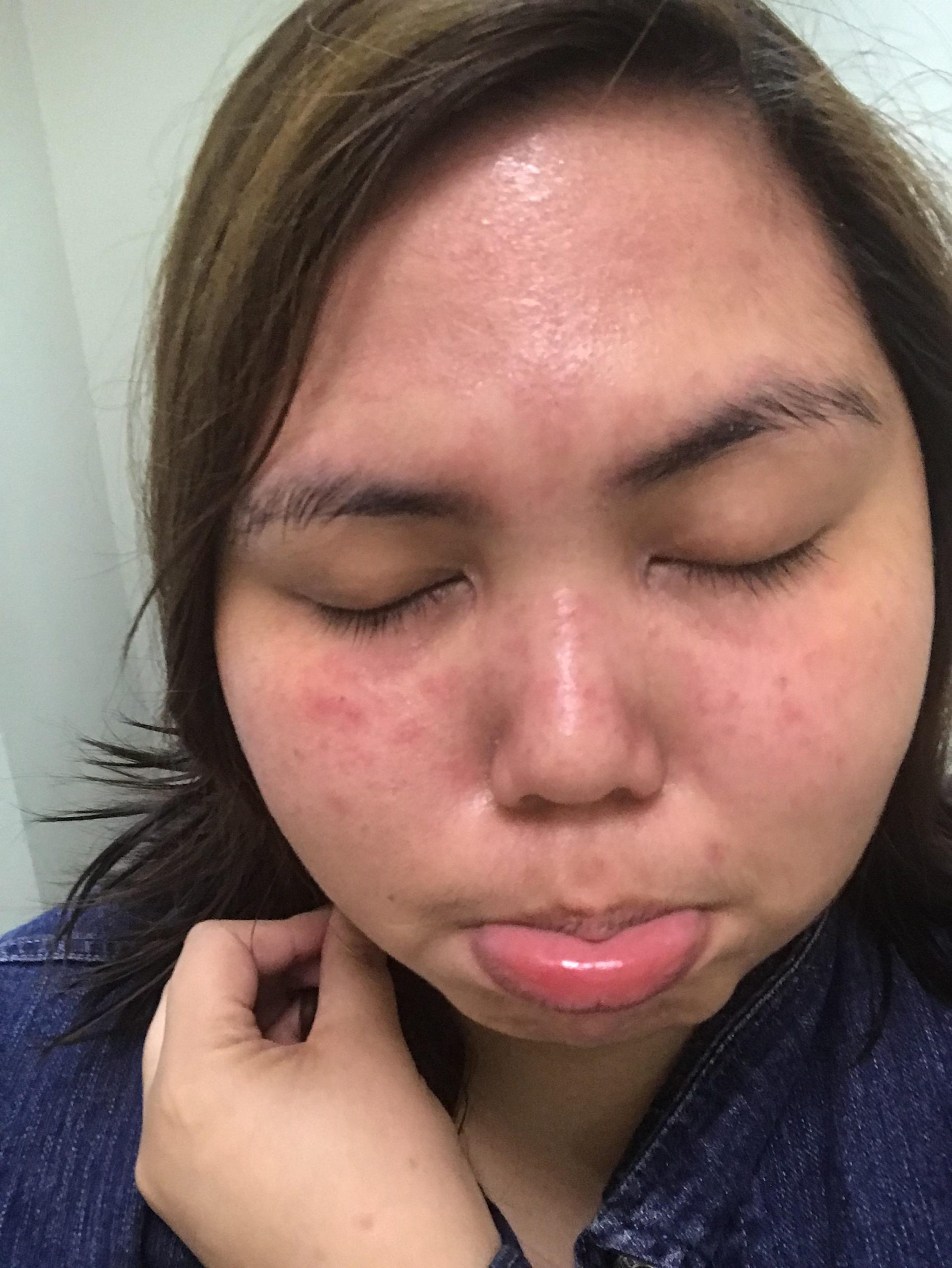
Image Source: Reddit
Living with psoriasis can take a toll on emotional well-being, leading to feelings of self-consciousness, embarrassment, or depression. The visible symptoms of psoriasis may impact self-esteem and social interactions, contributing to psychological distress.
15. Flare-ups triggered by stress or certain medications
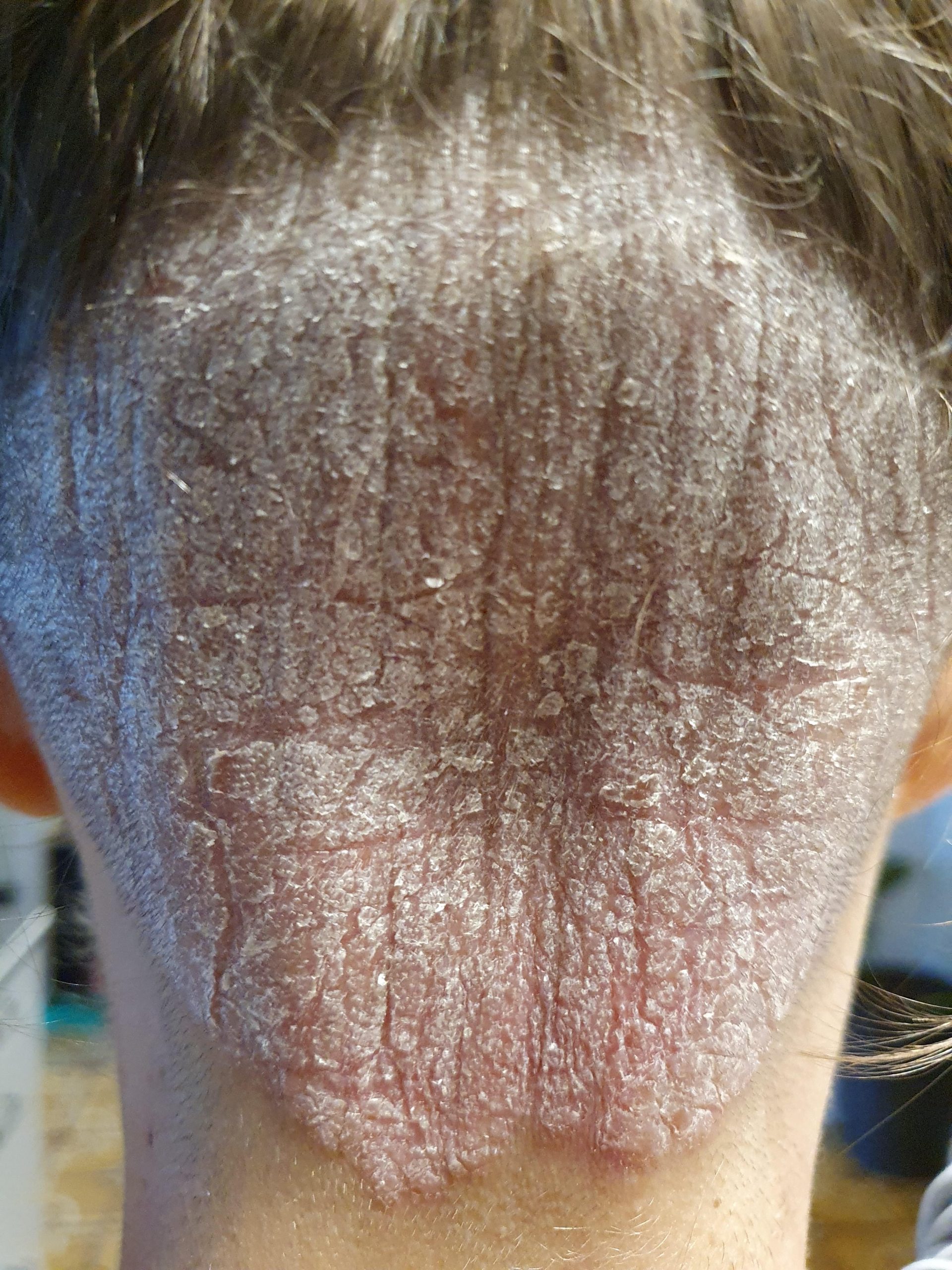
Image Source: Reddit
Psoriasis flare-ups can be triggered by various factors, including stress, certain medications, infections, or changes in weather. Understanding potential triggers and managing stress can help reduce the frequency and severity of flare-ups. It should be understood that stress will cause flare ups.
16. White or silvery scales on red patches (inverse psoriasis)
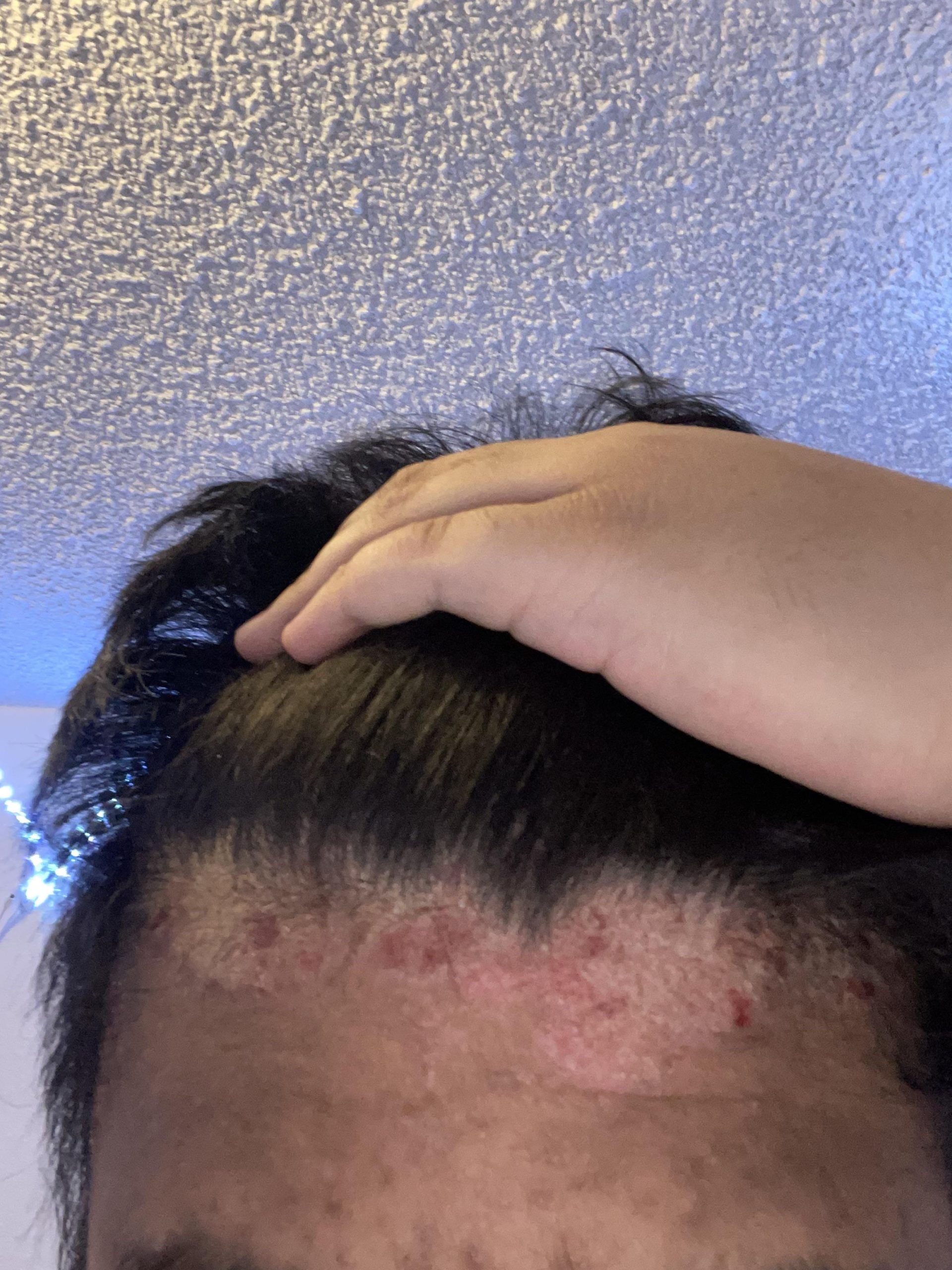
Image Source: Reddit
Inverse psoriasis affects skin folds, such as the armpits, groin, or under the breasts. It is characterized by smooth, red patches of skin with white or silvery scales, often accompanied by itching or discomfort. This a culmination of both kinds of psoriasis.
17. Swelling and stiffness in the joints
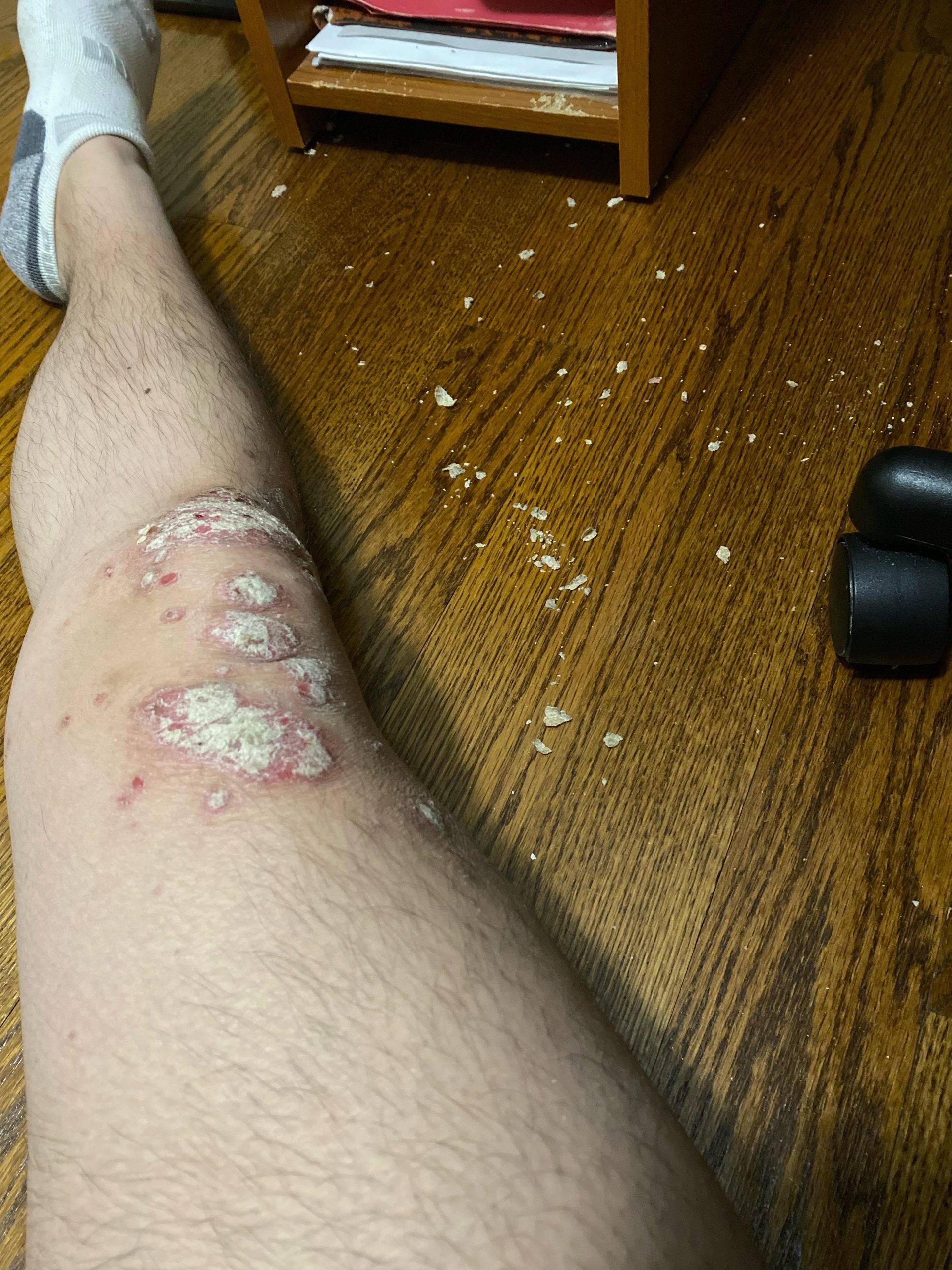
Image Source: Reddit
Psoriatic arthritis, a chronic inflammatory condition, intricately affects joints and connective tissues, manifesting through symptoms such as joint swelling, stiffness, and pain. The resultant challenges in mobility and functionality significantly impact a person's day-to-day life, posing hurdles to routine activities and overall well-being.
18. Lesions that extend beyond the hairline onto the forehead
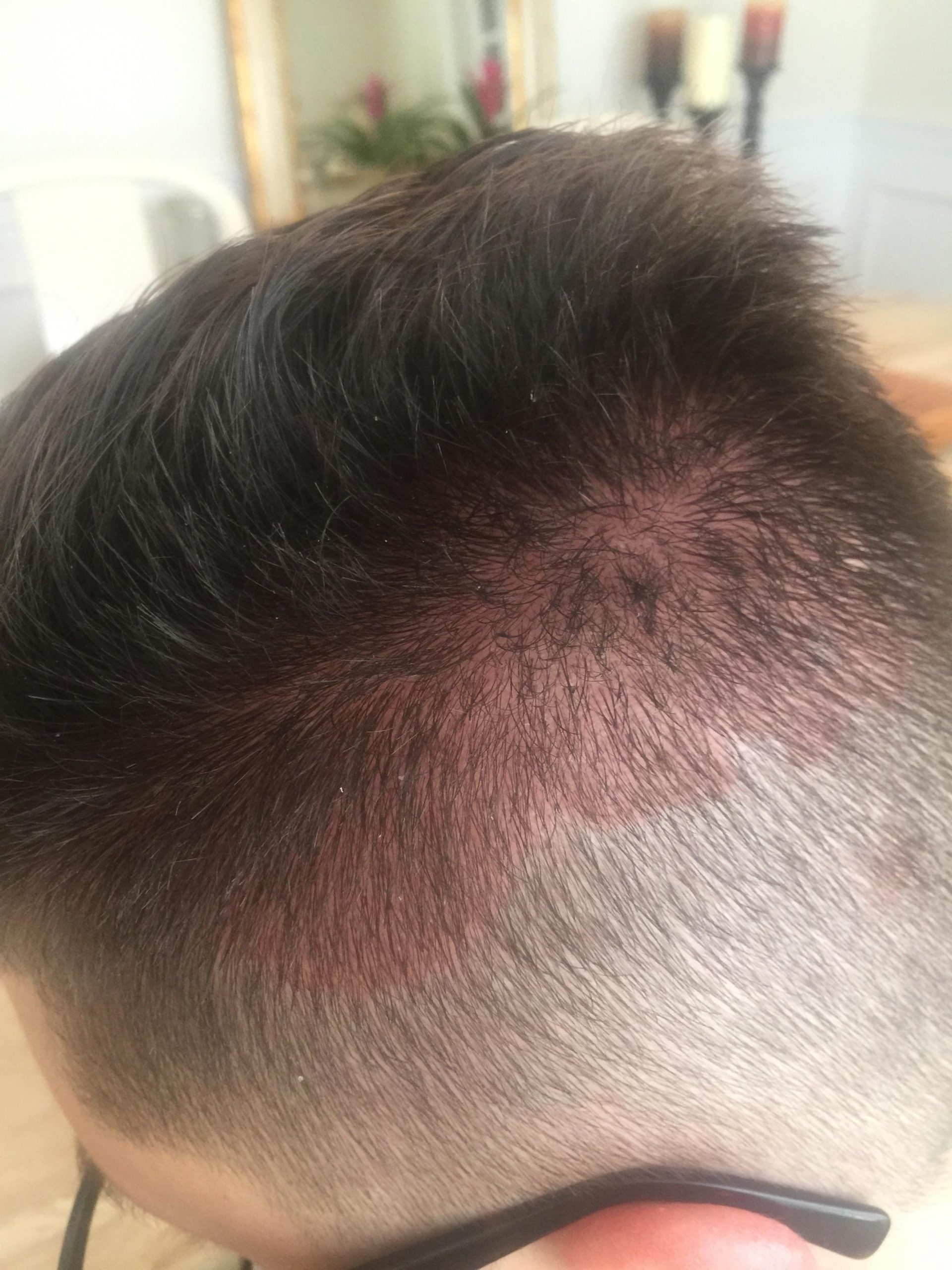
Image Source: Reddit
Scalp psoriasis can extend beyond the hairline onto the forehead, neck, or ears, causing redness, scaling, and itching. These lesions may be visible and contribute to self-consciousness or discomfort. This can lead to people feeling self conscious of their appearance.
19. Discomfort or pain when brushing or combing the hair
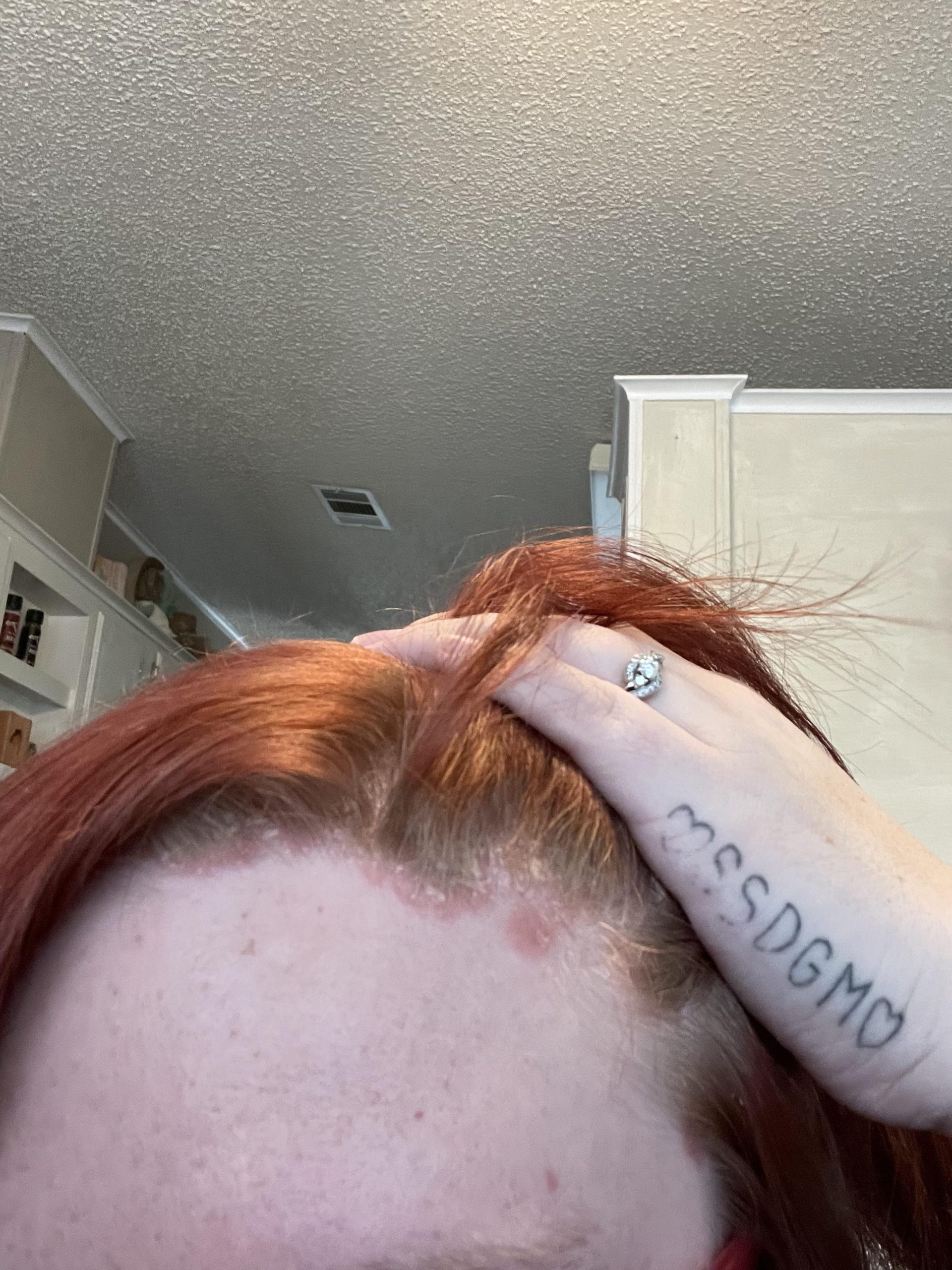
Image Source: Reddit
Scalp psoriasis can cause discomfort or pain when brushing or combing the hair, especially if the scalp is inflamed or sensitive. This discomfort may worsen during flare-ups and can impact grooming habits and is generally because of the scalp psoriasis.
20. Changes in the appearance or texture of the skin
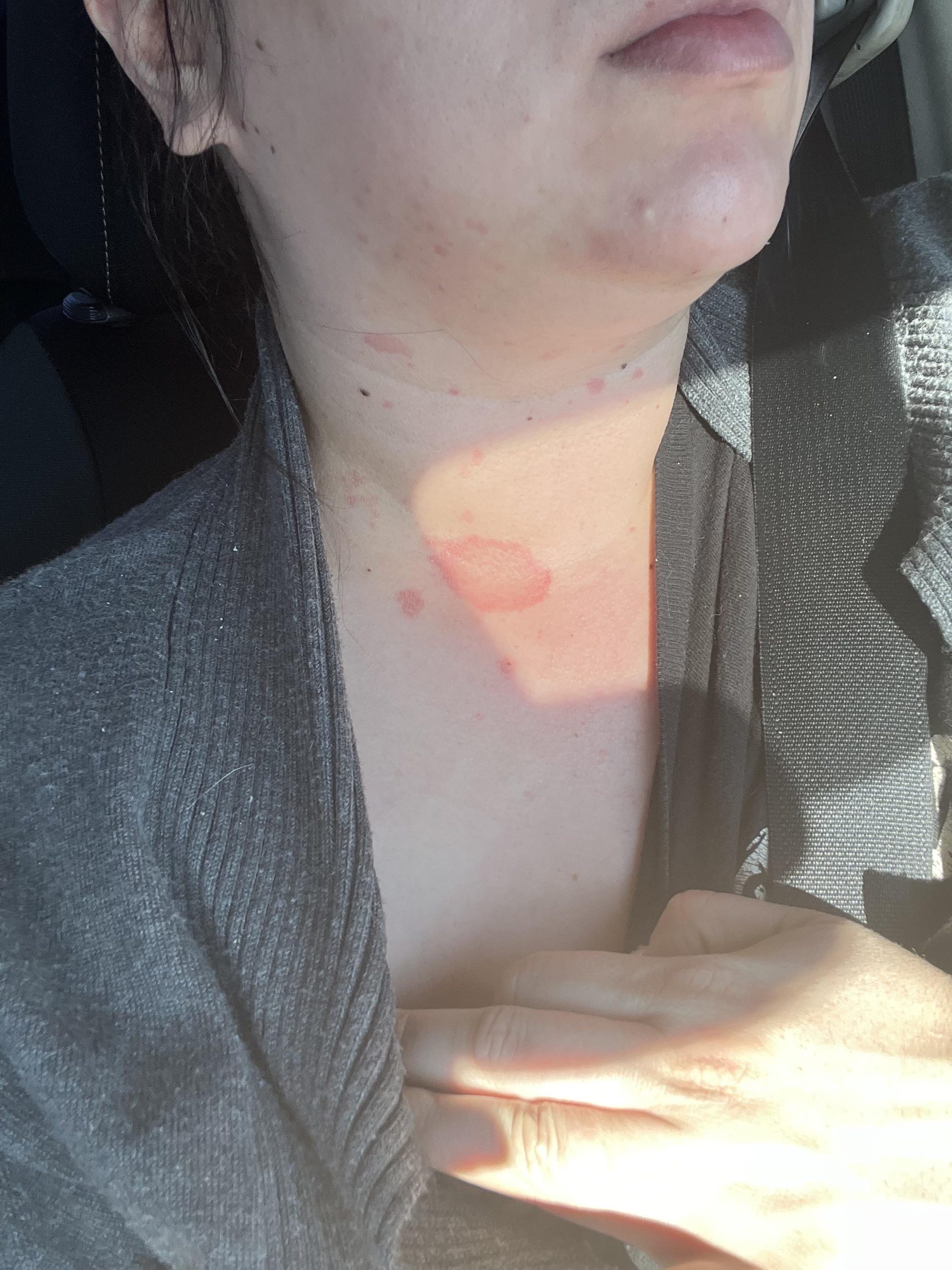
Image Source: Reddit
Psoriasis can induce alterations in the skin's appearance and texture, giving rise to manifestations like redness, scaling, and thickening in the affected areas. The extent of these changes varies, ranging from localized to widespread, contingent upon the severity of the condition, solely attributable to the infected areas.
21. Lesions that develop in response to injury or infection (Koebner phenomenon)
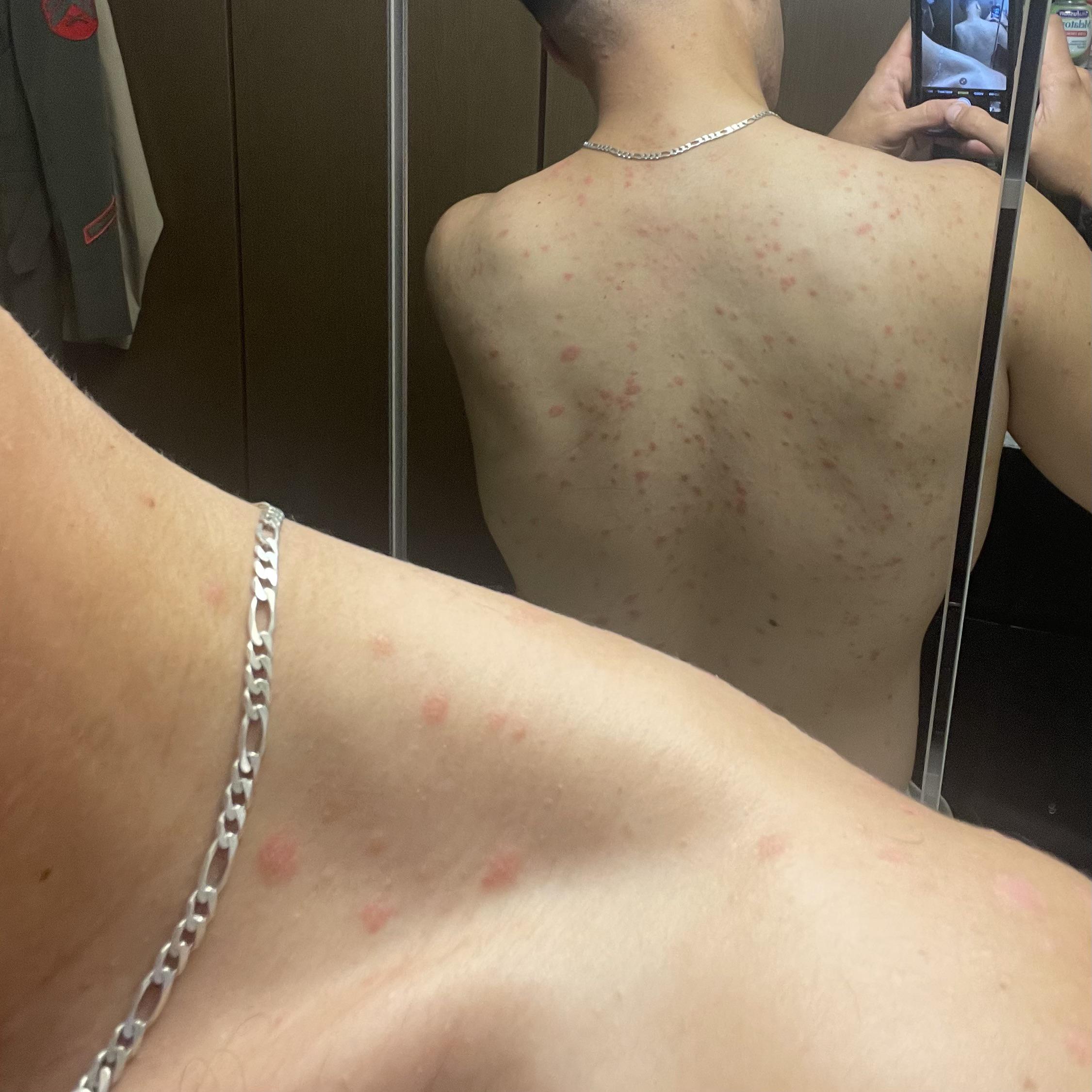
Image Source: Reddit
The Koebner phenomenon is a characteristic feature of psoriasis in which new lesions develop in response to injury or infection of the skin. This phenomenon underscores the inflammatory nature of psoriasis and its propensity to spread to new areas of the body.
22. Nail separation from the nail bed (onycholysis)
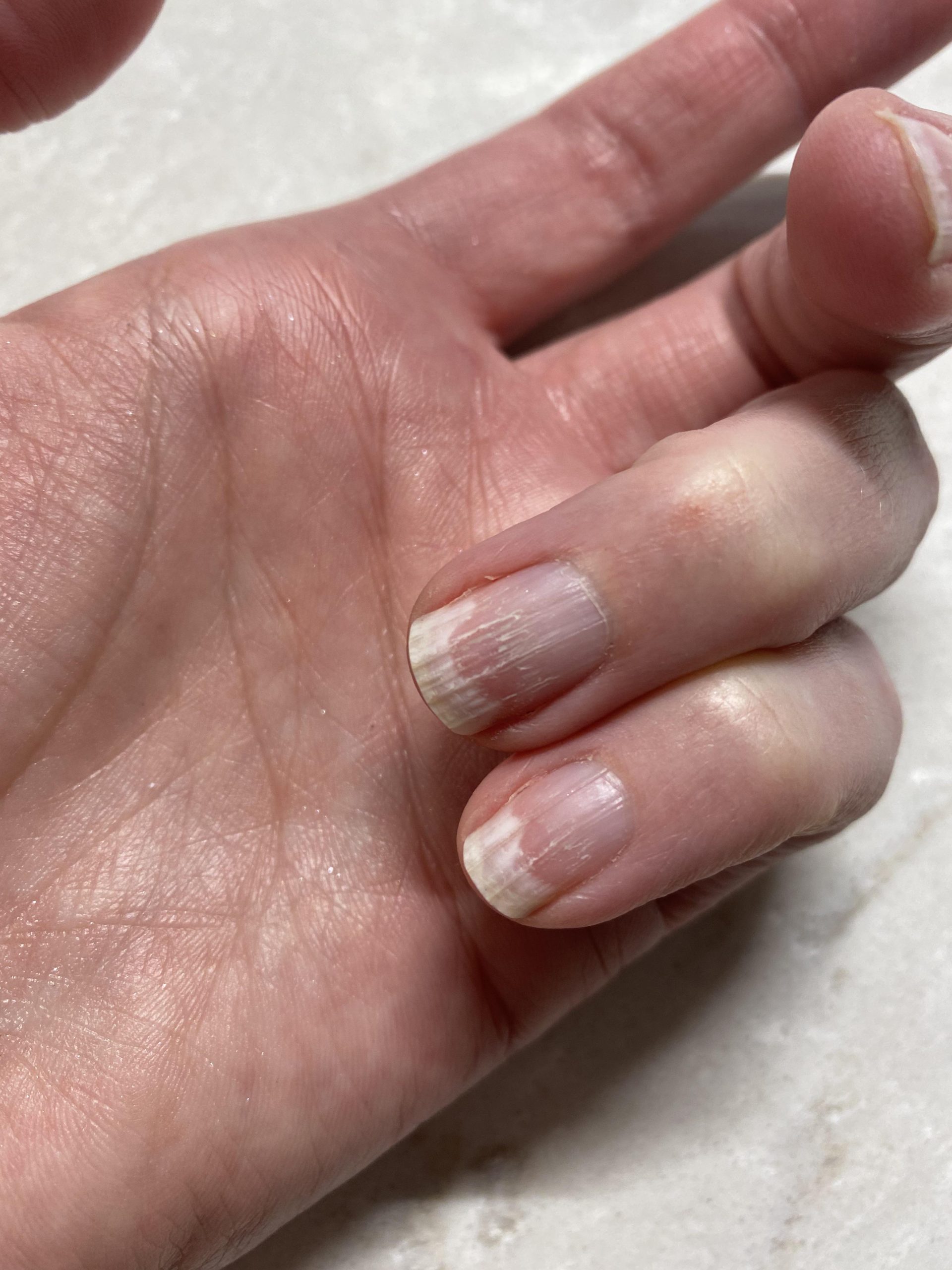
Image Source: Reddit
Psoriasis can cause onycholysis, a condition in which the nails separate from the nail bed. This separation may result in pain, discomfort, or cosmetic concerns, affecting the appearance and function of the nails. This is due to the lack of blood flow and discolouration.
23. Discomfort or pain when wearing certain clothing
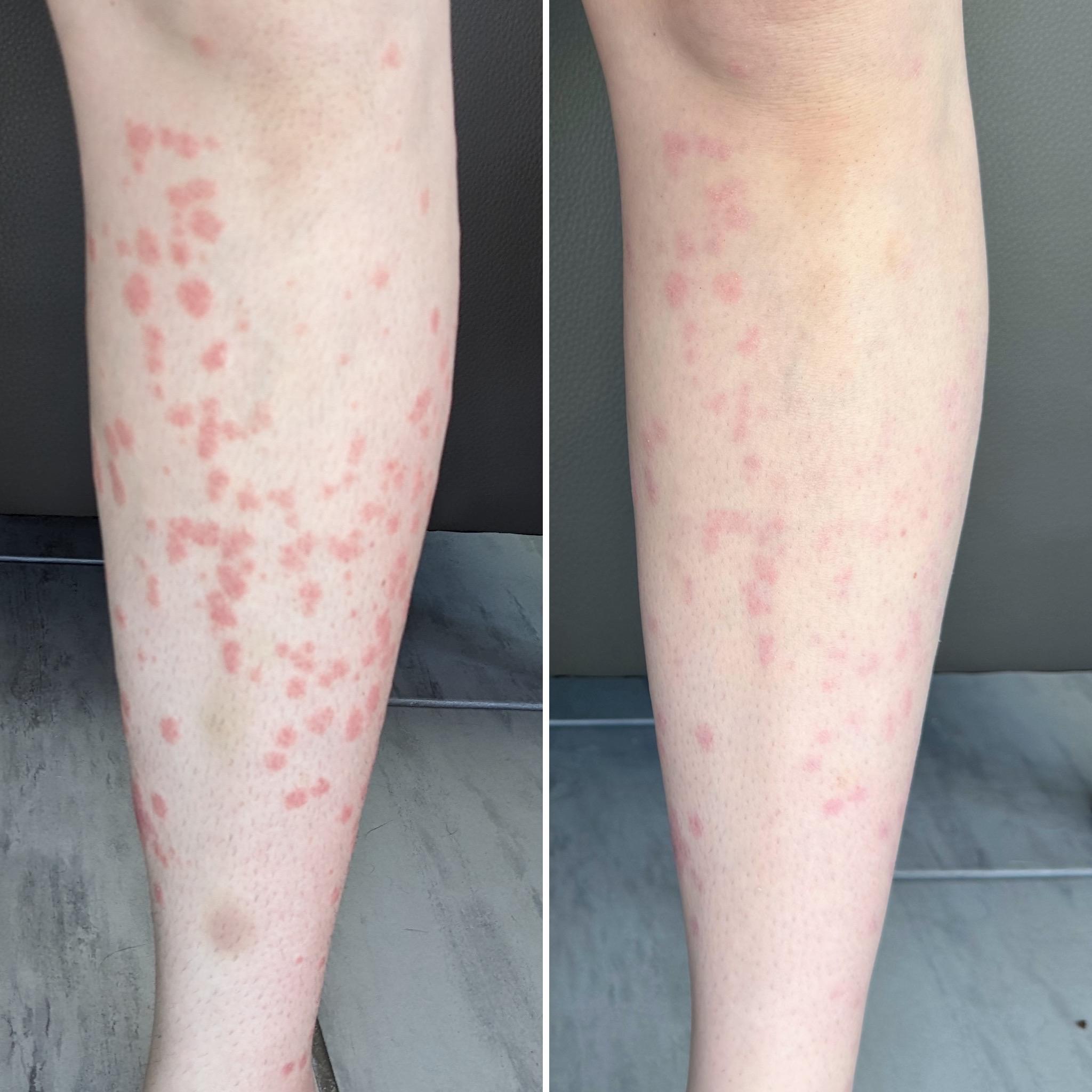
Image Source: Reddit
Psoriasis lesions can cause discomfort or pain when wearing certain types of clothing, especially if the fabric rubs against inflamed or sensitive skin. Individuals may need to modify their clothing choices to minimize irritation and discomfort. This is because of the irritation from the clothing onto the skin.
24. Difficulty performing daily activities due to pain or discomfort
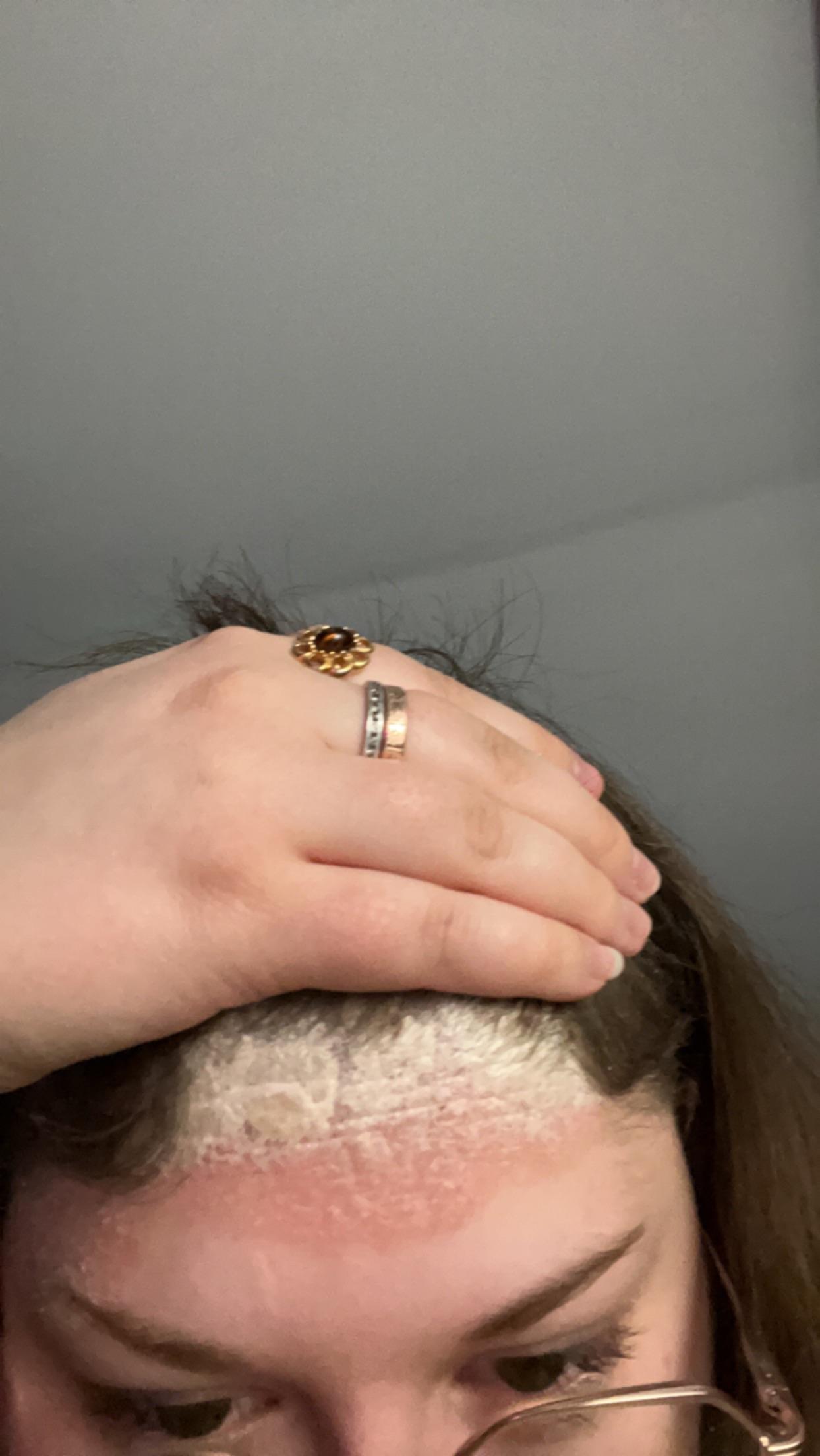
Image Source: Reddit
Psoriasis can interfere with daily activities such as bathing, dressing, or grooming, particularly during flare-ups or when the skin is inflamed. Pain, discomfort, or restricted mobility may require adaptations to maintain independence and quality of life.
25. Lesions that develop in the genital area (genital psoriasis)
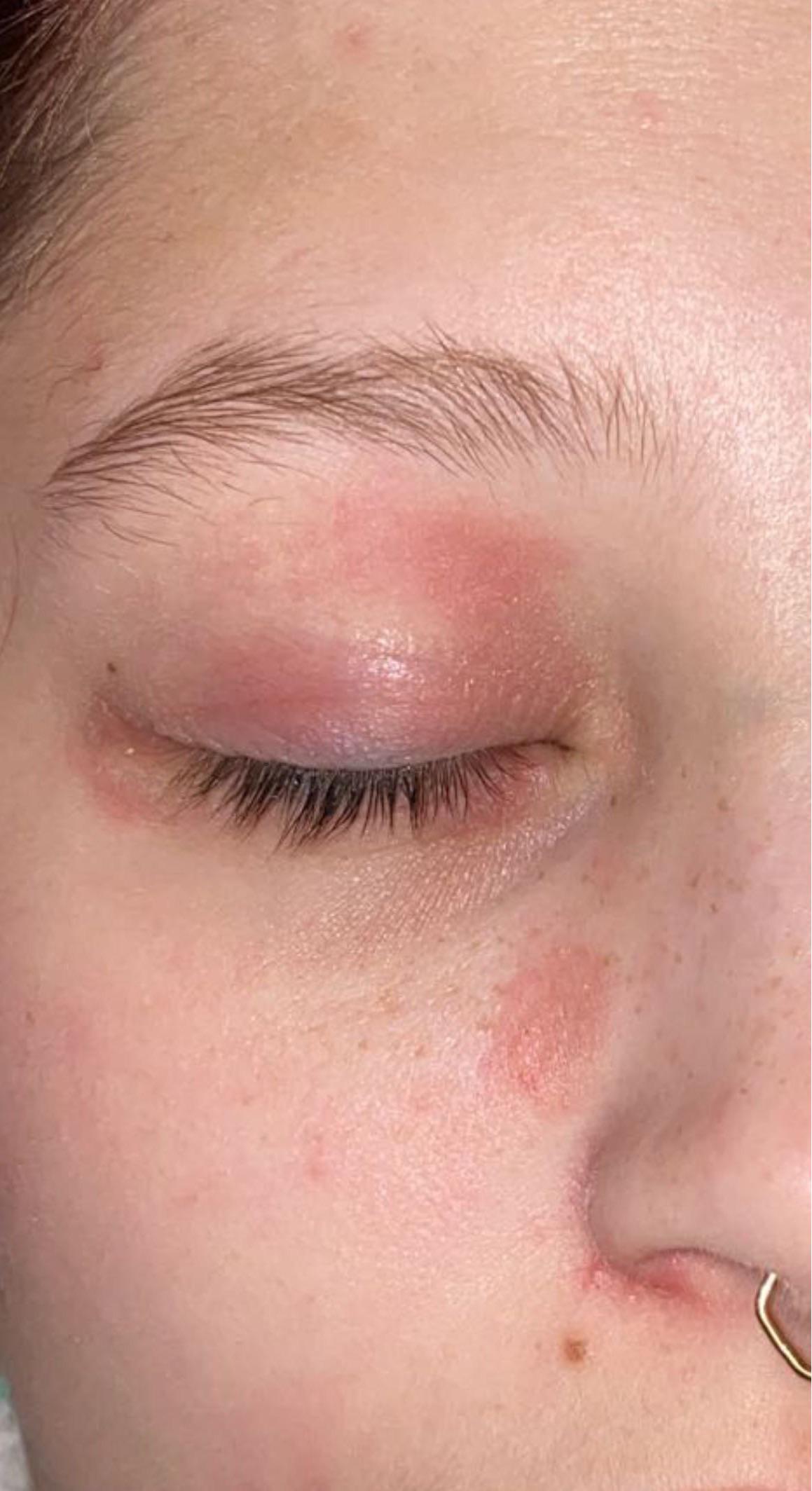
Image Source: Reddit
Genital psoriasis is a subtype of psoriasis that affects the genital area, causing redness, scaling, and discomfort. These lesions may be mistaken for other conditions, highlighting the importance of accurate diagnosis and treatment. Unfortunately this is not an uncommon area to get psoriasis.
26. Lesions that develop in the folds of the skin (flexural psoriasis)
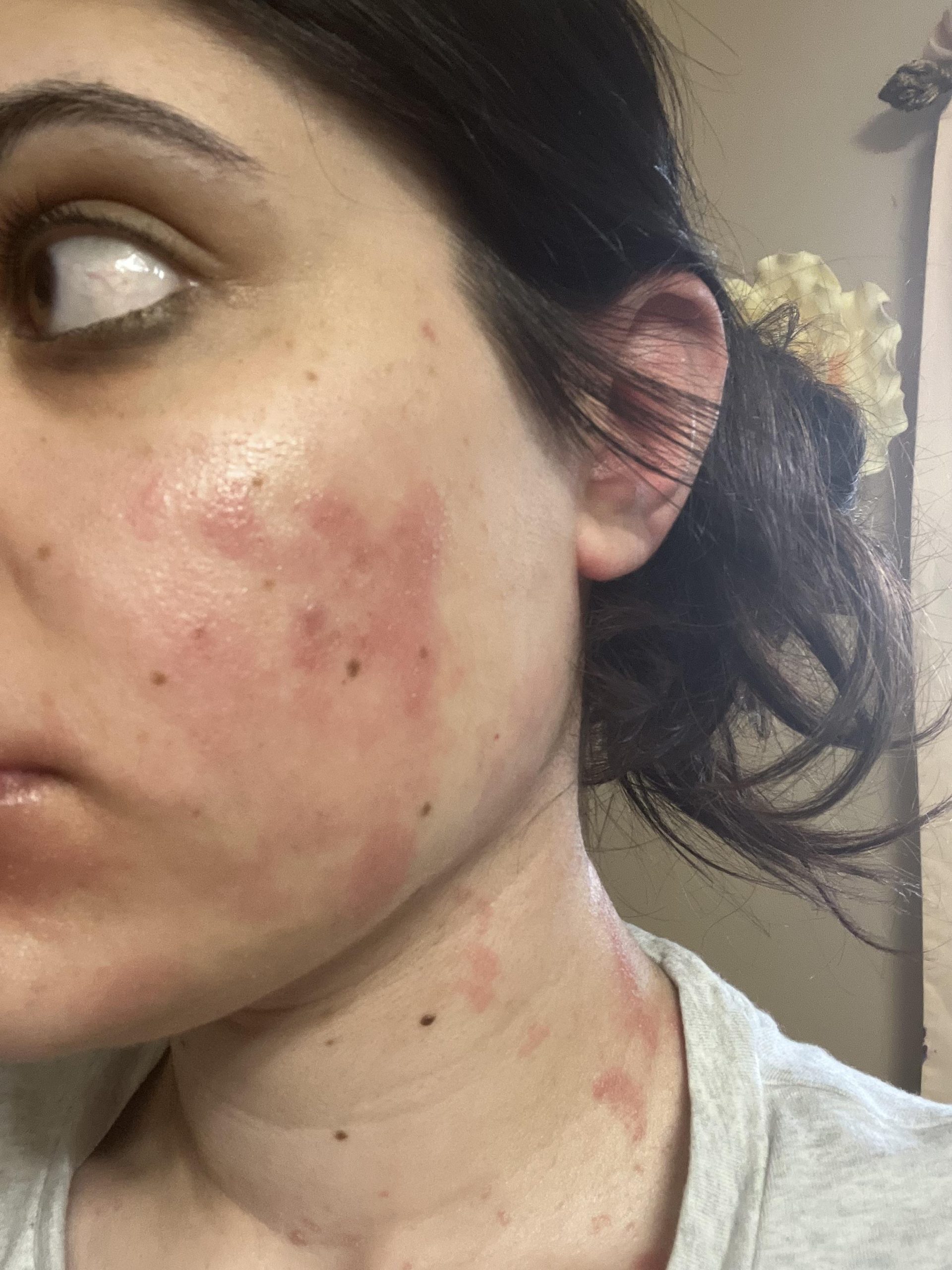
Image Source: Reddit
Flexural psoriasis is a subtype of psoriasis that affects skin folds, such as the armpits, groin, or under the breasts. It is characterized by smooth, red patches of skin that may be prone to irritation and discomfort. This variant tends to lack the characteristic scaling present in other manifestations of the condition. Due to the moisture in these areas they are more prone to psoriasis.
27. Pain or discomfort during sexual activity
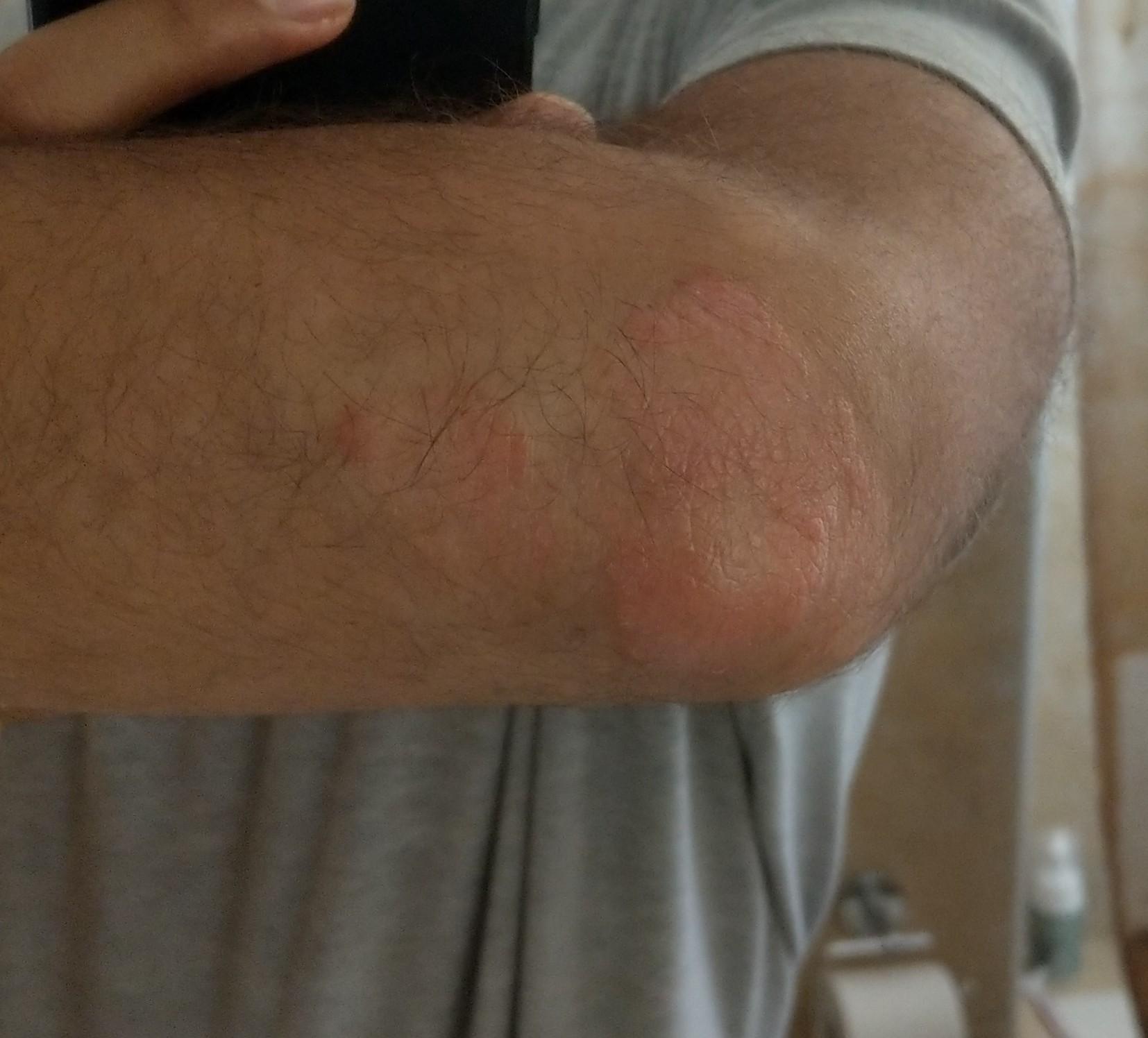
Image Source: Reddit
Genital psoriasis can cause pain or discomfort during sexual activity, affecting intimacy and quality of life. Individuals may experience sensitivity or irritation in the genital area, leading to decreased sexual satisfaction. Like the previous points, this due to affected areas of folds in the skin and genitals.
28. Lesions that worsen with friction or pressure
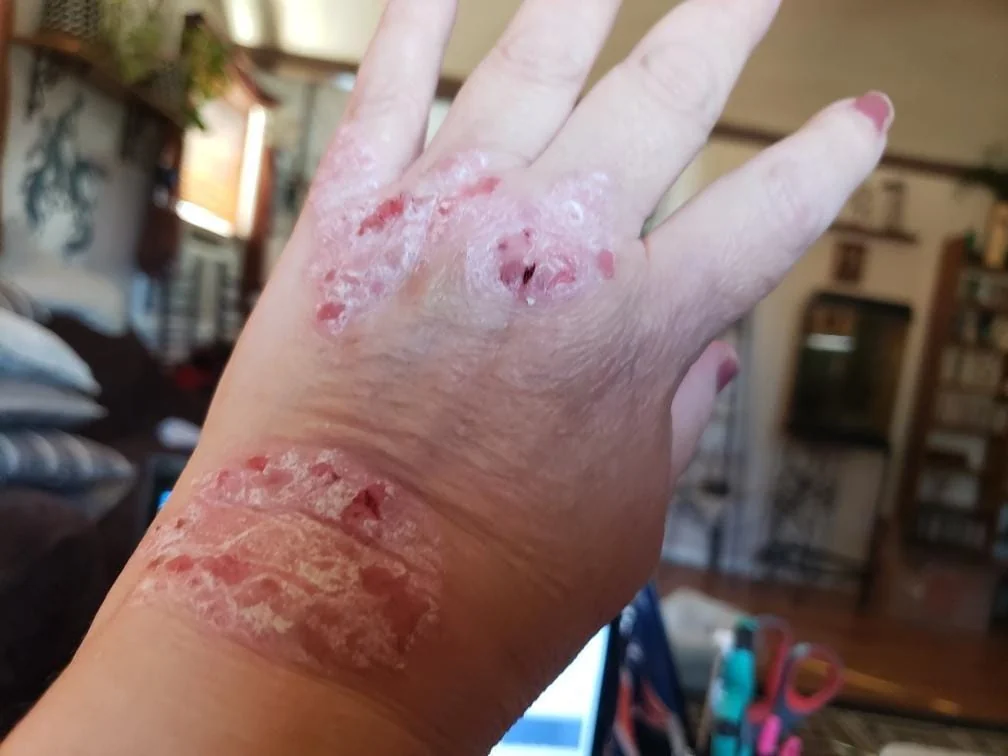
Image Source: Reddit
Psoriasis lesions may worsen with friction or pressure on the skin, leading to increased discomfort or irritation. Individuals may need to avoid activities or behaviors that exacerbate symptoms to minimize skin damage and promote healing. This is an obvious point. Irritating the area will make it worse.
29. Lesions that develop in response to sun exposure (photosensitive psoriasis)
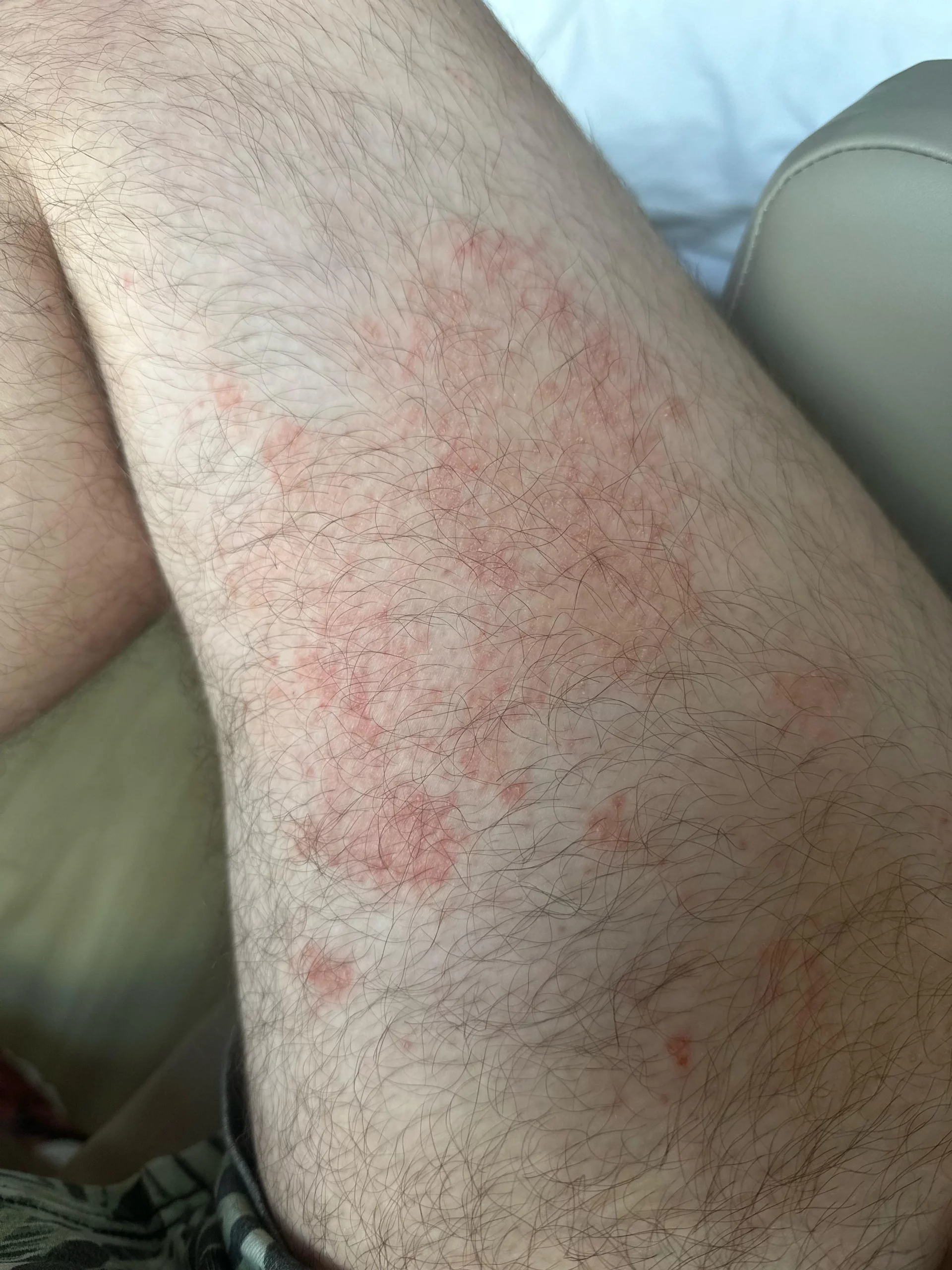
Image Source: Reddit
Photosensitive psoriasis is characterized by the development or aggravation of lesions upon exposure to sunlight. Ultraviolet (UV) radiation, a component of sunlight, serves as a trigger for inflammation, intensifying the symptoms associated with this variant of psoriasis.
30. Lesions that develop in response to certain medications (drug-induced psoriasis)
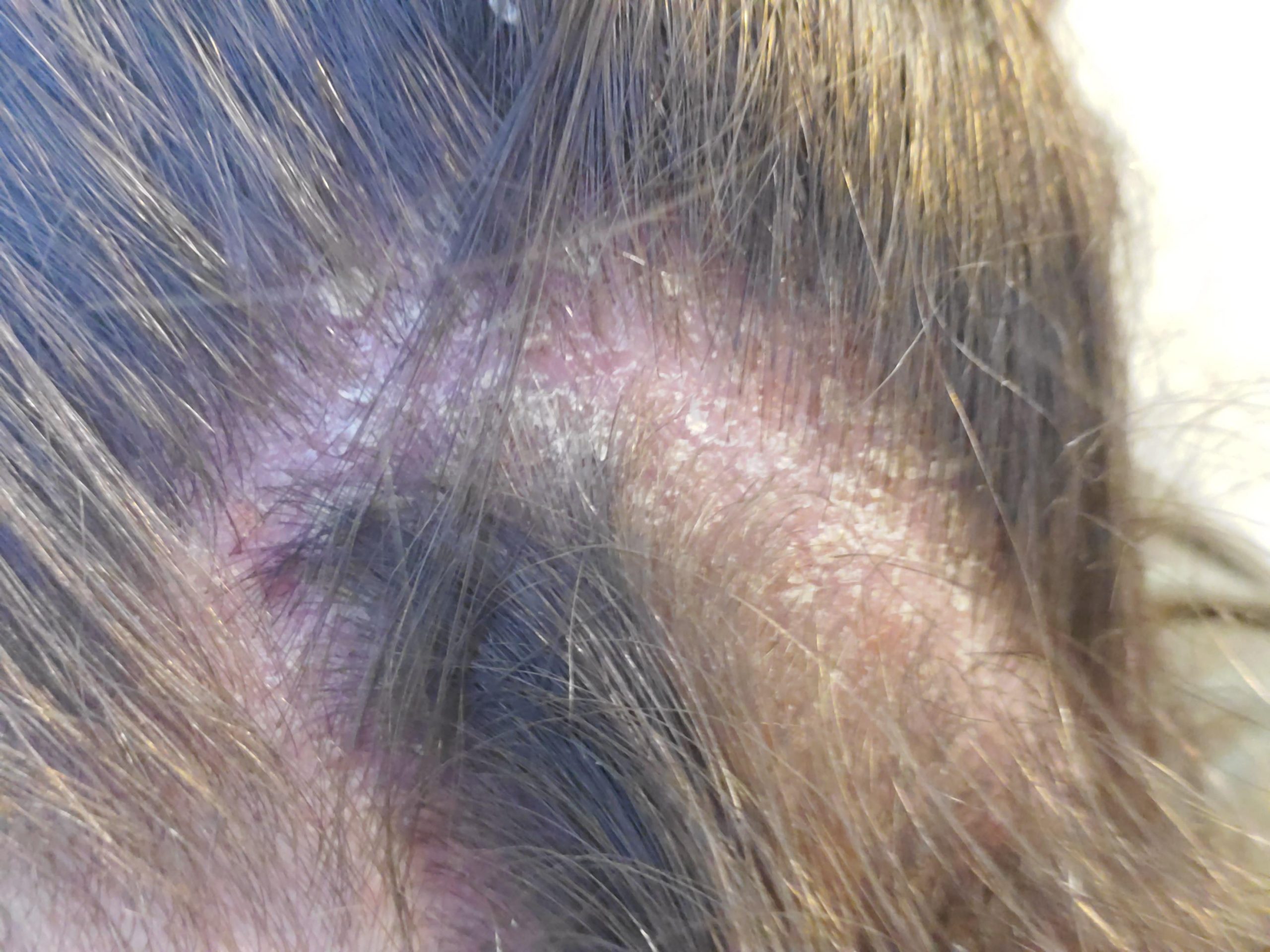
Image Source: Reddit
Drug-induced psoriasis is a subtype of psoriasis that develops in response to certain medications, such as lithium, beta-blockers, or antimalarial drugs. These medications can trigger or exacerbate psoriasis symptoms, necessitating careful monitoring and management.
31. Lesions that develop in response to infections (infectious psoriasis)
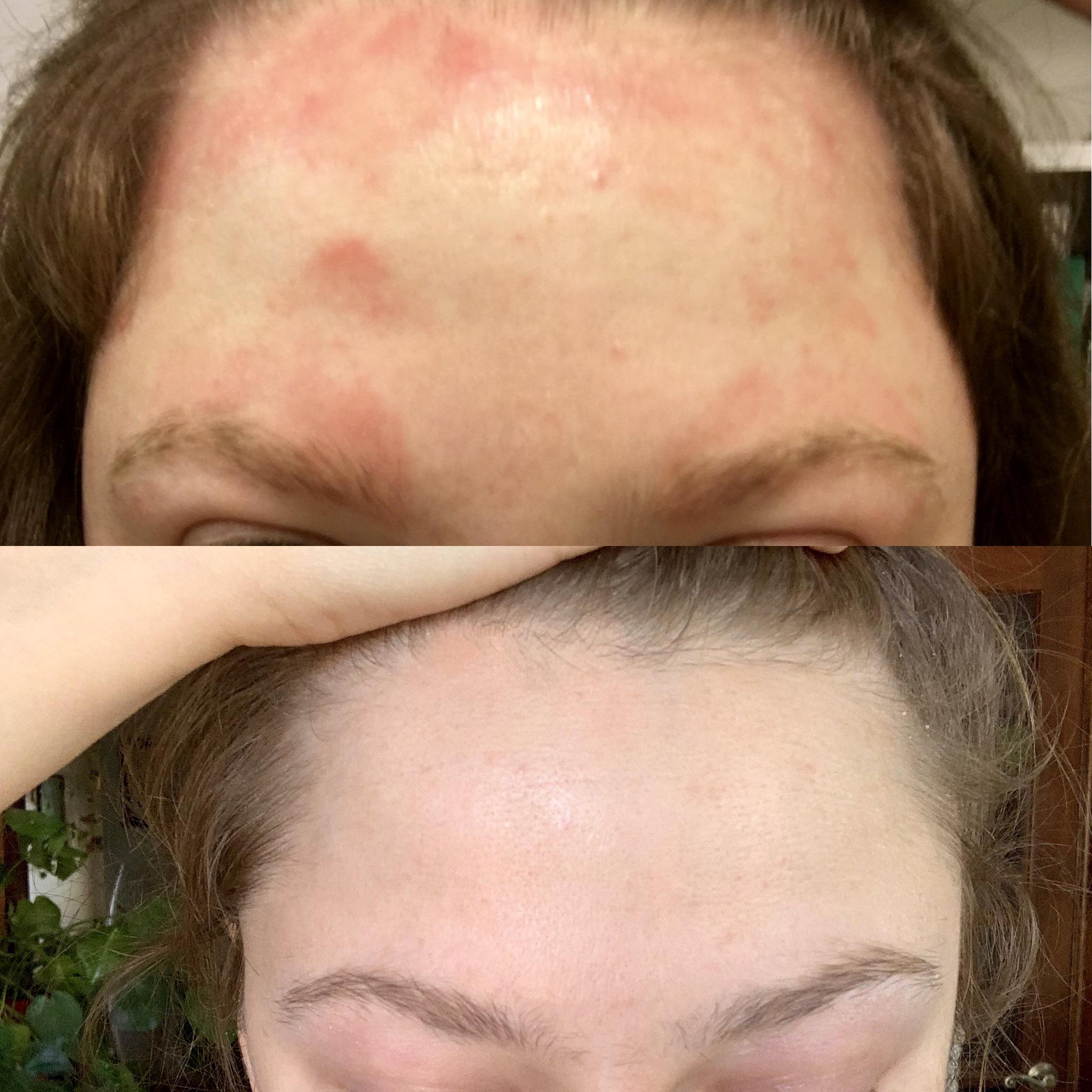
Image Source: Reddit
Infectious psoriasis is a subtype of psoriasis that develops in response to bacterial or viral infections, such as streptococcal infections or HIV. These infections can trigger or exacerbate psoriasis symptoms, leading to flare-ups and increased disease severity.
32. Lesions that develop in response to hormonal changes (hormonal psoriasis)
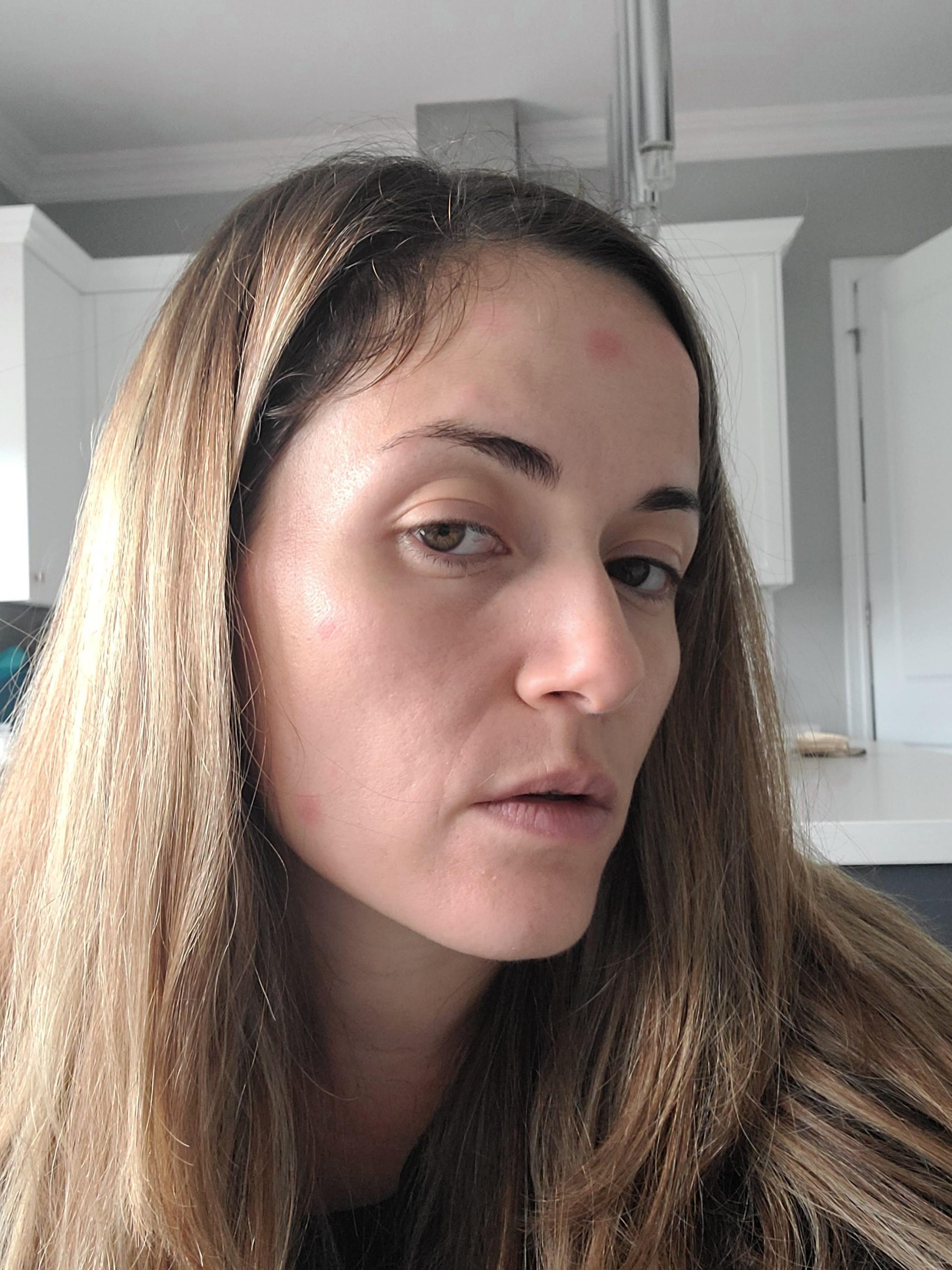
Image Source: Reddit
Hormonal psoriasis is a subtype of psoriasis that develops or worsens in response to hormonal changes, such as pregnancy, puberty, or menopause. Hormonal fluctuations can trigger inflammation and exacerbate symptoms, requiring specialized management.
33. Lesions that develop in response to emotional stress (stress-induced psoriasis)
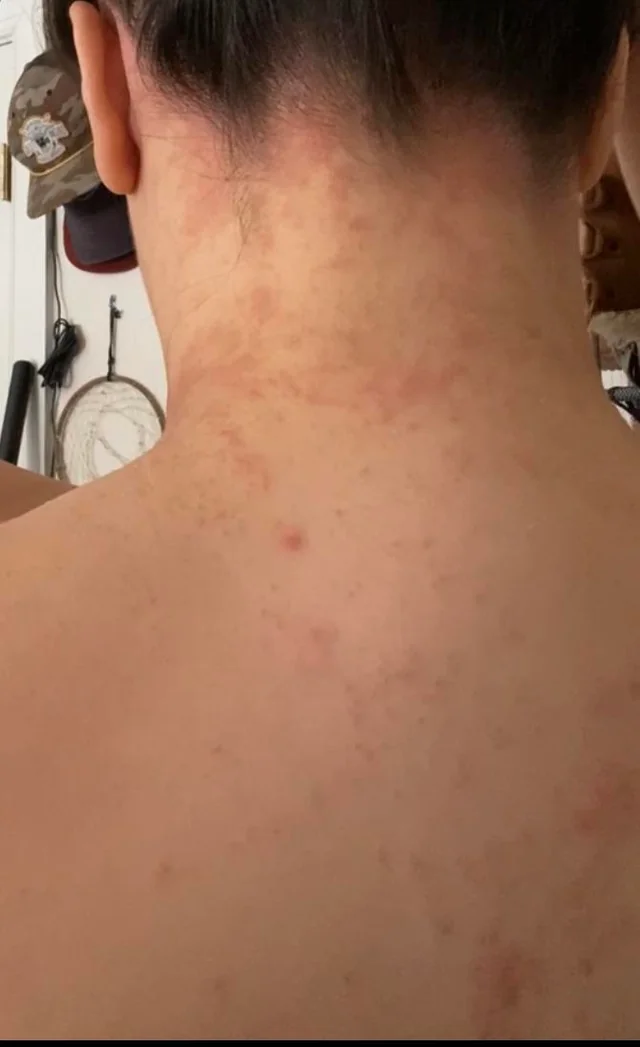
Image Source: Reddit
Stress-induced psoriasis is a subtype of psoriasis that develops or worsens in response to emotional stress or psychological distress. Stress can trigger inflammatory responses in the body, leading to flare-ups and increased disease activity. People should try mind calming activities such a yoga.
34. Lesions that develop in response to smoking (smoking-induced psoriasis)
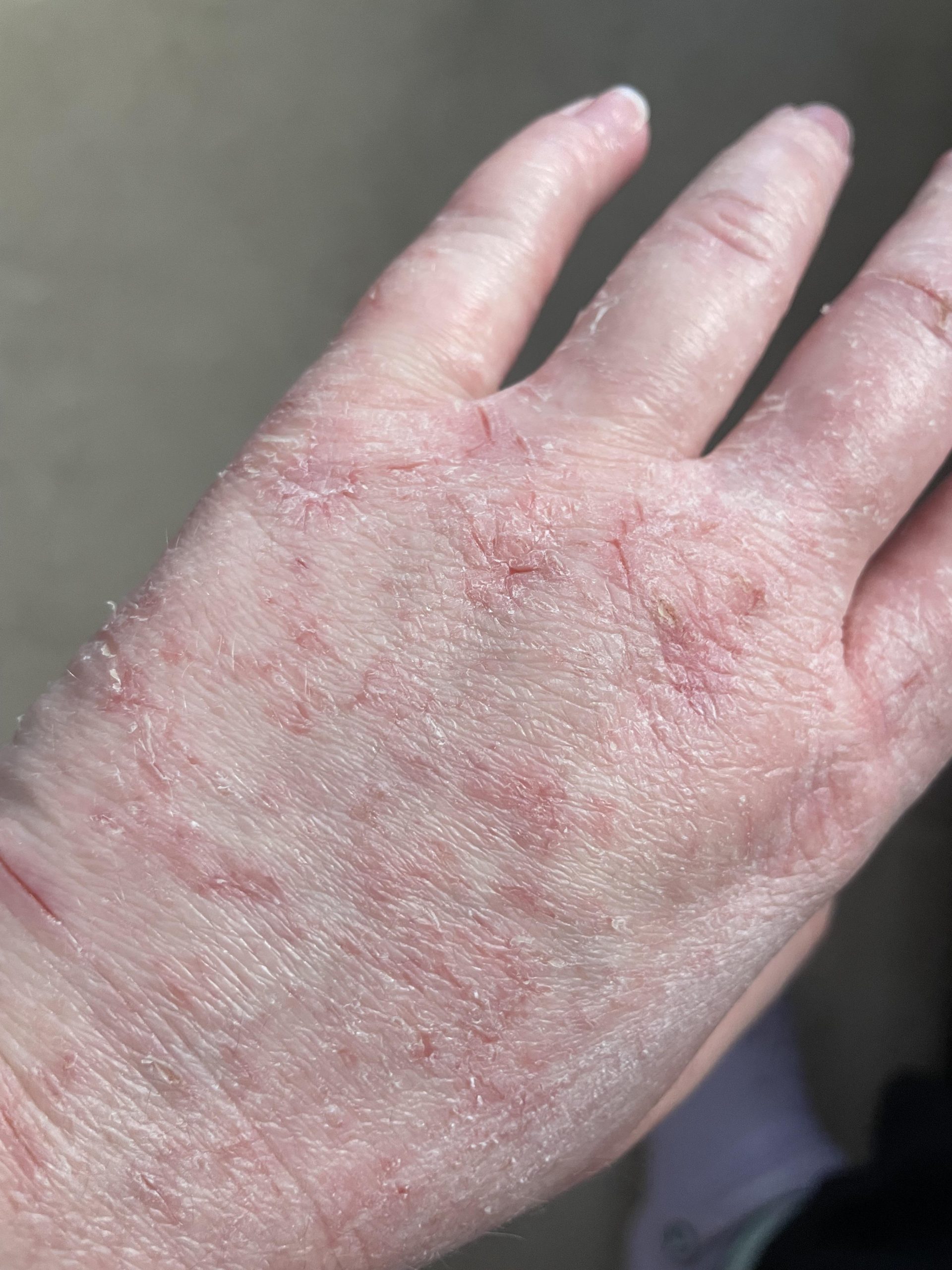
Image Source: Reddit
Smoking-induced psoriasis is a subtype of psoriasis that develops or worsens in response to smoking tobacco products. Smoking can trigger inflammation and oxidative stress in the body, exacerbating psoriasis symptoms and disease severity. There are smoking alternatives out there that should be explored.
35. Lesions that develop in response to alcohol consumption (alcohol-induced psoriasis)
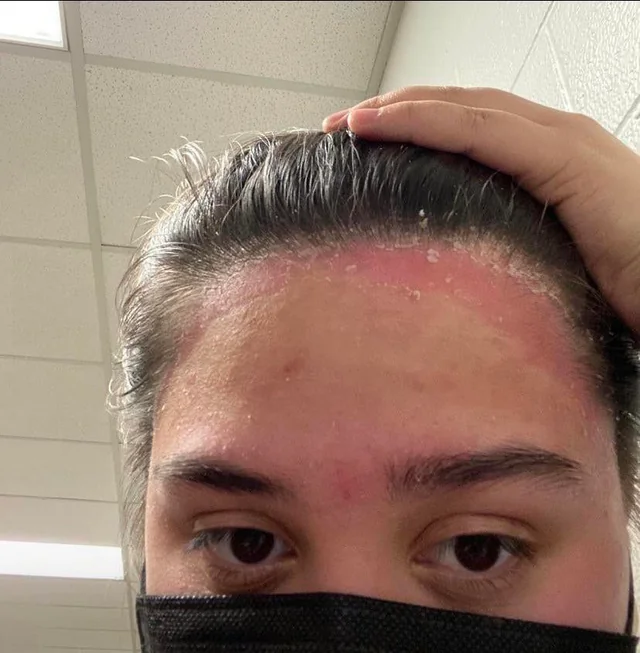
Image Source: Reddit
Alcohol-induced psoriasis is a subtype of psoriasis that develops or worsens in response to excessive alcohol consumption. Alcohol can trigger inflammation and immune dysregulation, leading to flare-ups and increased disease activity. Like the previous point there are alternatives that be tried.
36. Lesions that develop in response to obesity or metabolic syndrome (metabolic psoriasis)
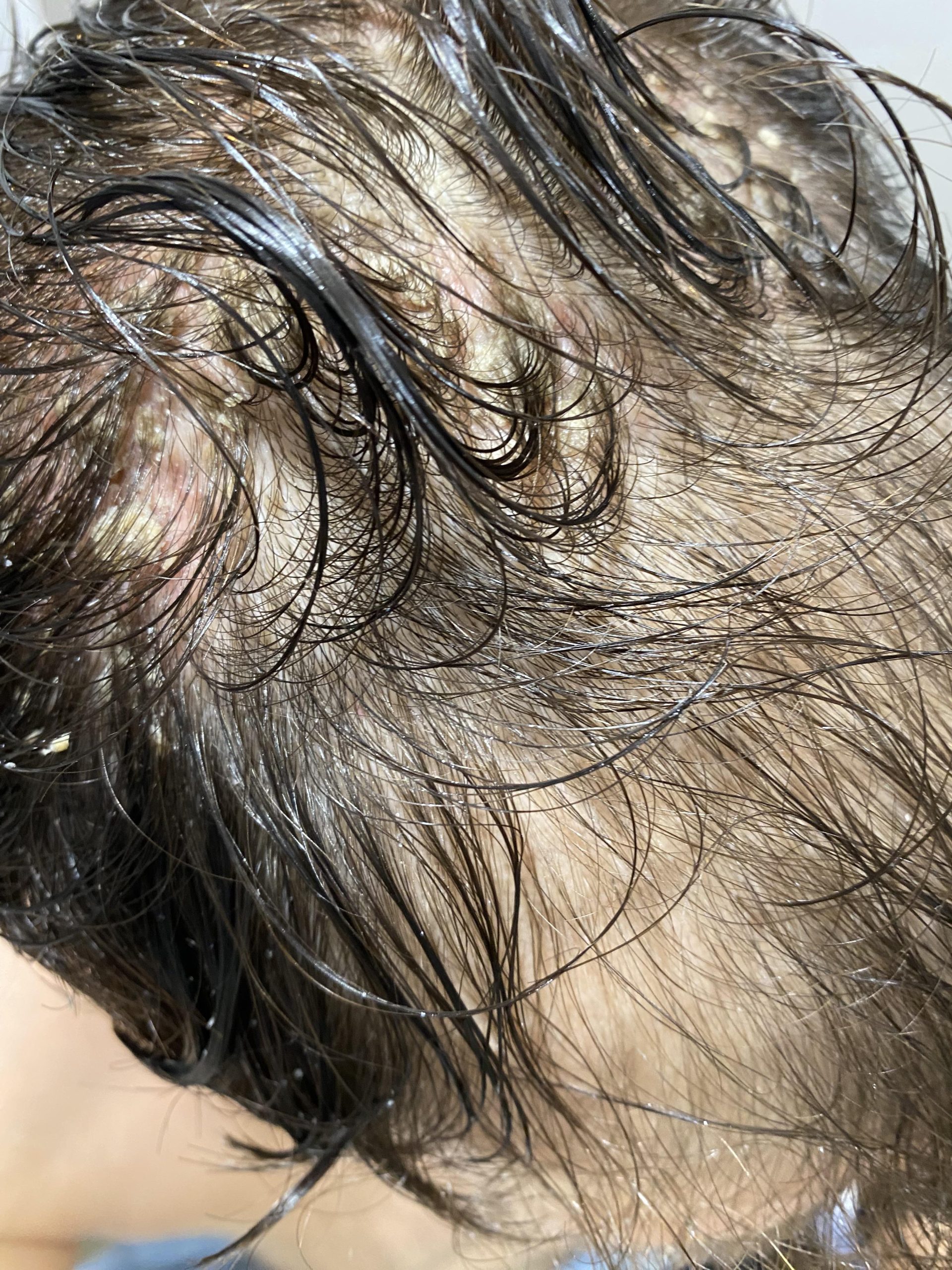
Image Source: Reddit
Metabolic psoriasis is a subtype of psoriasis that develops or worsens in response to obesity or metabolic syndrome. Obesity-related inflammation and insulin resistance can exacerbate psoriasis symptoms and increase disease severity. A common piece of advice is that if someone is concerned about weight, to go and see a specialist.
37. Lesions that develop in response to autoimmune diseases (autoimmune psoriasis)
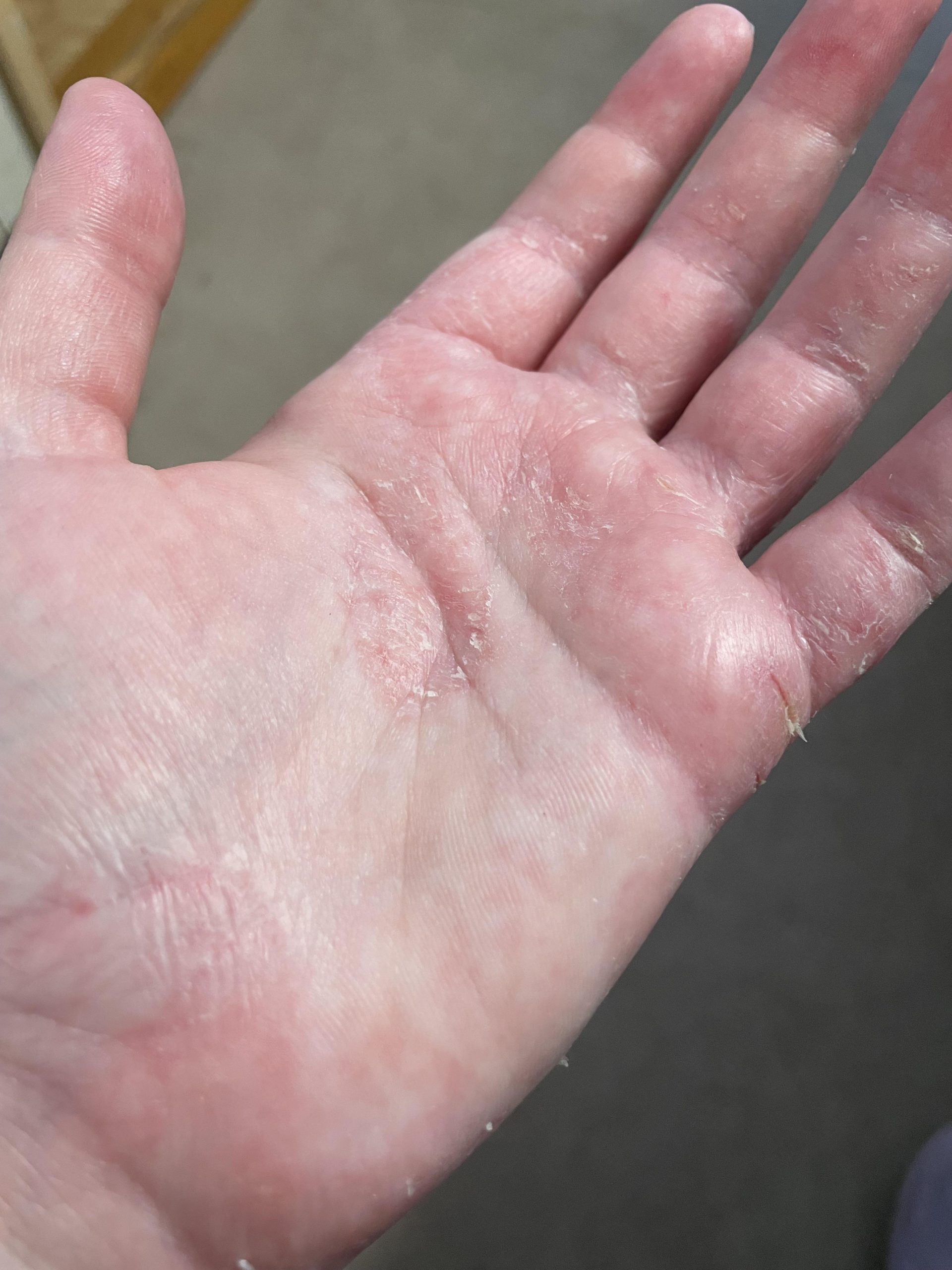
Image Source: Reddit
Autoimmune psoriasis is a subtype of psoriasis that develops or worsens in individuals with other autoimmune diseases, such as rheumatoid arthritis or lupus. Autoimmune dysregulation can trigger inflammatory responses in the body, leading to psoriasis flare-ups and increased disease activity.
38. Lesions that develop in response to genetic factors (genetic psoriasis)
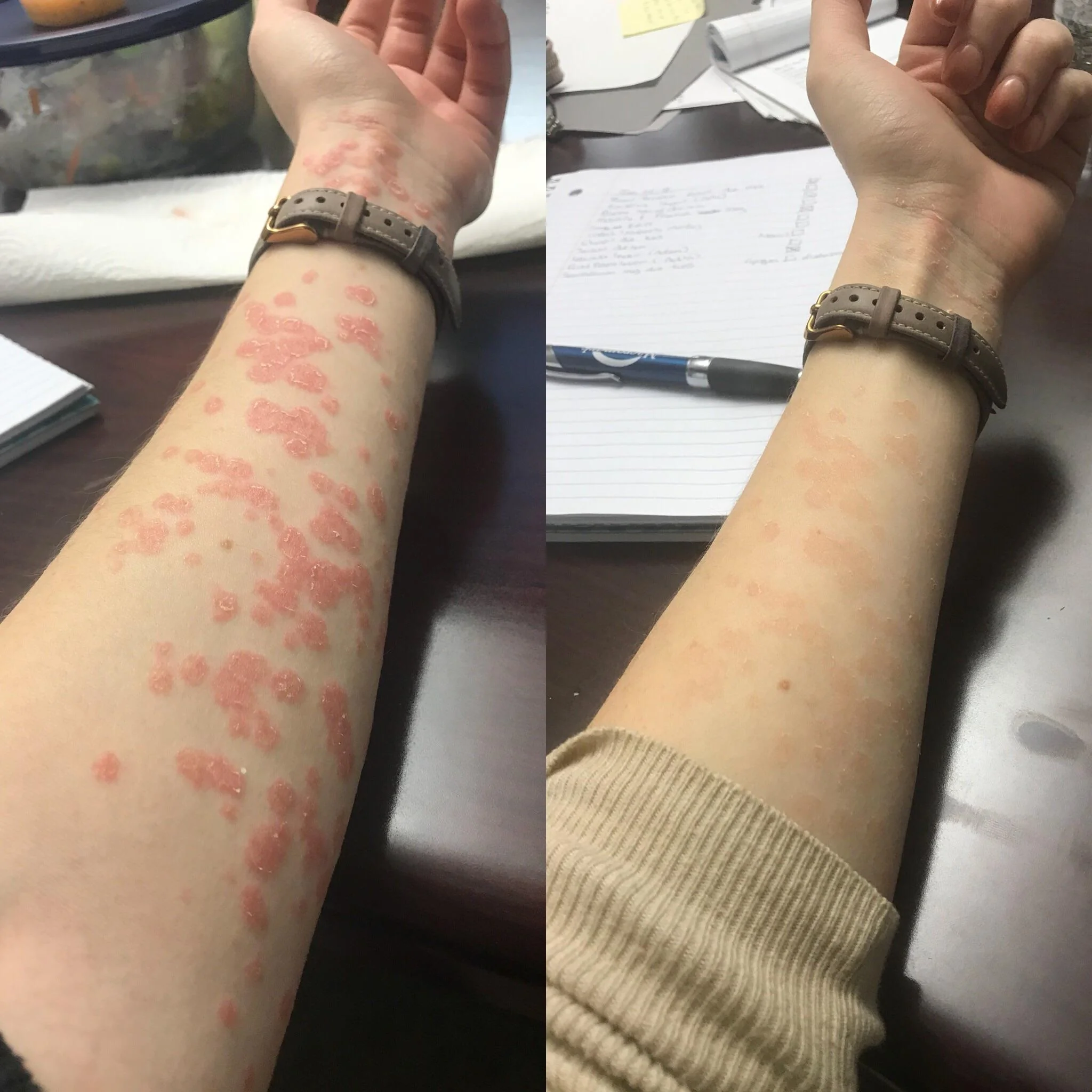
Image Source: Reddit
Genetic psoriasis is a subtype of psoriasis that develops or worsens in individuals with a family history of the condition. Genetic predisposition can influence disease susceptibility and severity, contributing to psoriasis development in susceptible individuals.
39. Lesions that develop in response to environmental factors (environmental psoriasis)
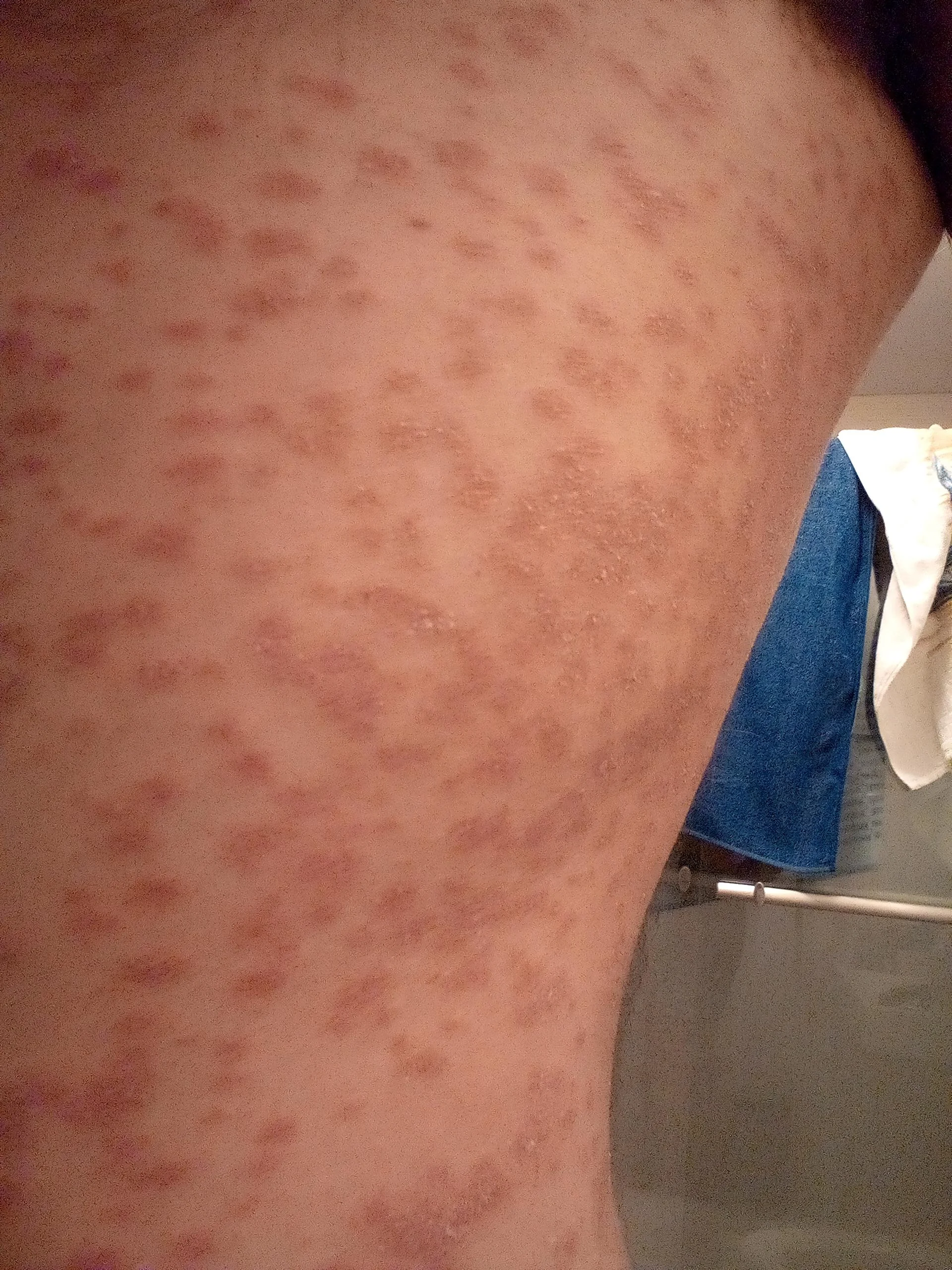
Image Source: Reddit
Environmental psoriasis is a subtype of psoriasis that develops or worsens in response to environmental factors, such as climate, pollution, or occupational exposures. Environmental triggers can exacerbate psoriasis symptoms and increase disease severity.
40. Lesions that develop in response to dietary factors (diet-induced psoriasis)
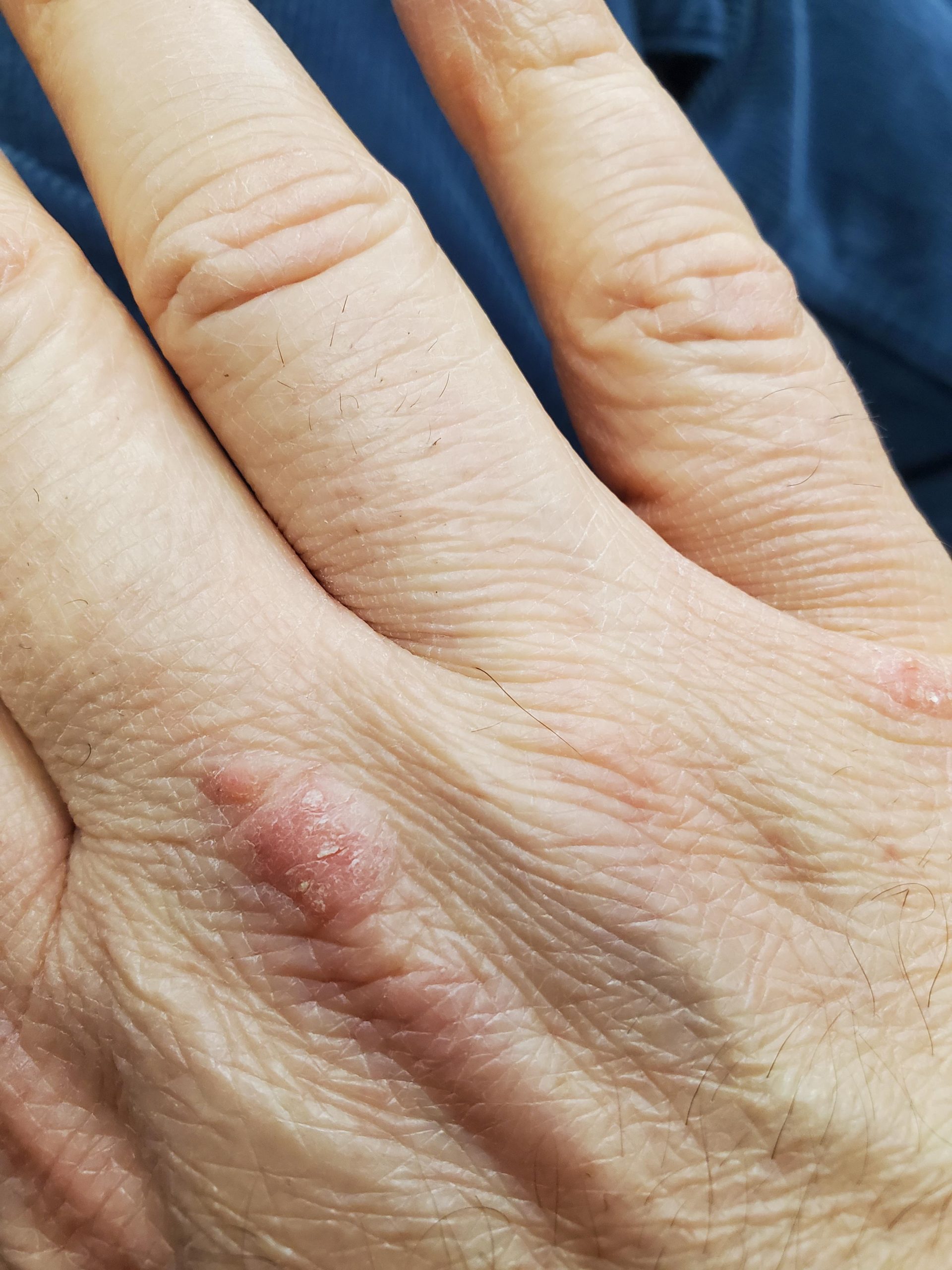
Image Source: Reddit
Diet-induced psoriasis is a subtype of psoriasis that develops or worsens in response to dietary factors, such as gluten, dairy, or sugar. Dietary triggers can exacerbate inflammation and immune dysregulation, leading to flare-ups and increased disease activity.
41. Lesions that develop in response to allergic reactions (allergic psoriasis)
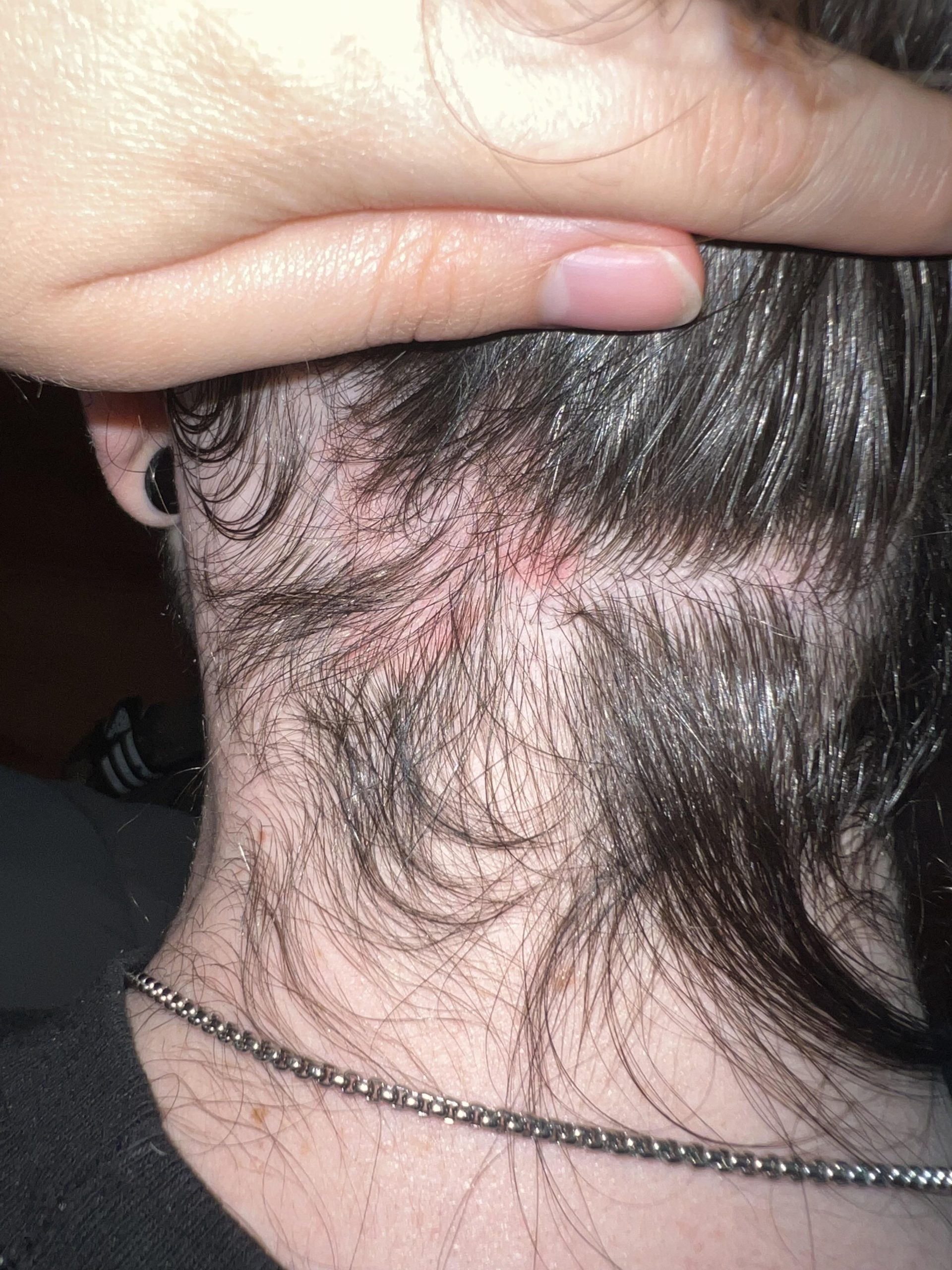
Image Source: Reddit
Allergic psoriasis is a subtype of psoriasis that develops or worsens in response to allergic reactions to certain foods, medications, or environmental allergens. Allergic triggers can exacerbate inflammation and immune dysregulation, leading to flare-ups and increased disease activity.
42. Lesions that develop in response to hormonal changes during menstruation (menstrual psoriasis)
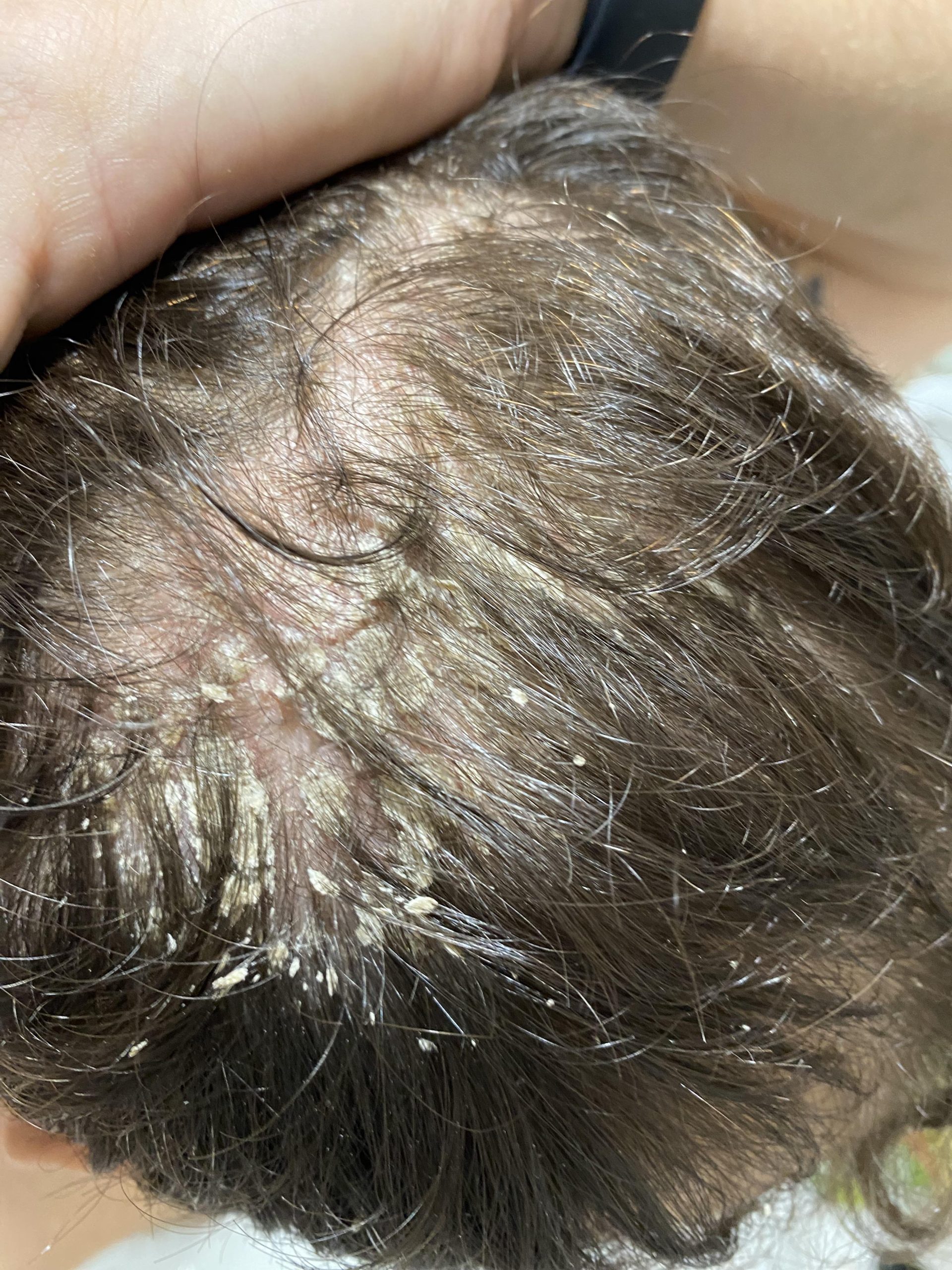
Image Source: Reddit
Menstrual psoriasis is a subtype of psoriasis that develops or worsens in response to hormonal changes during menstruation. Hormonal fluctuations can trigger inflammation and exacerbate psoriasis symptoms, leading to flare-ups and increased disease severity.
43. Lesions that develop in response to hormonal changes during pregnancy (pregnancy-induced psoriasis)
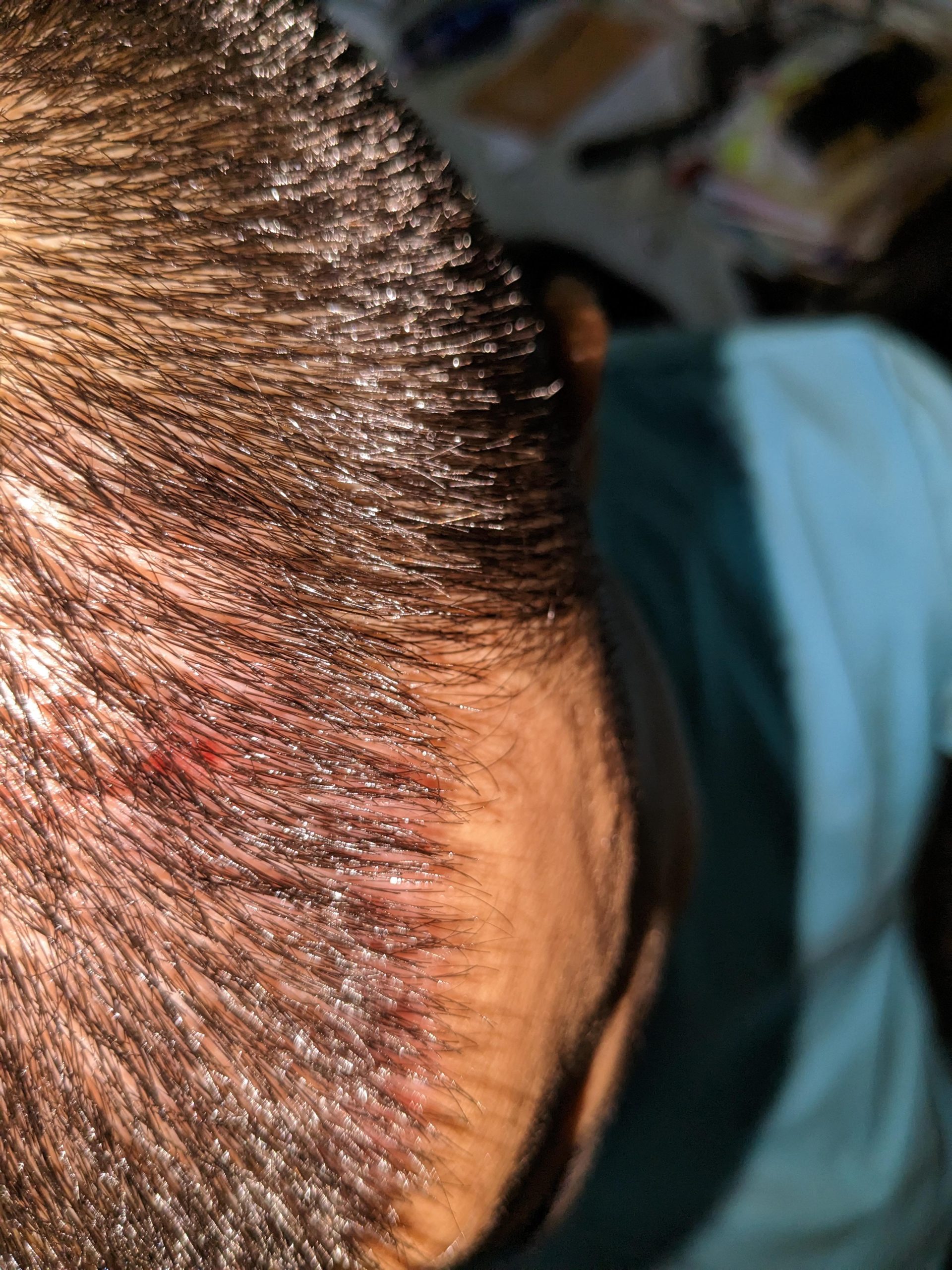
Image Source: Reddit
Pregnancy-induced psoriasis is a subtype of psoriasis that develops or worsens in response to hormonal changes during pregnancy. Pregnancy-related hormonal fluctuations can trigger inflammation and exacerbate psoriasis symptoms, leading to flare-ups and increased disease activity.
44. Lesions that develop in response to hormonal changes during menopause (menopause-induced psoriasis)
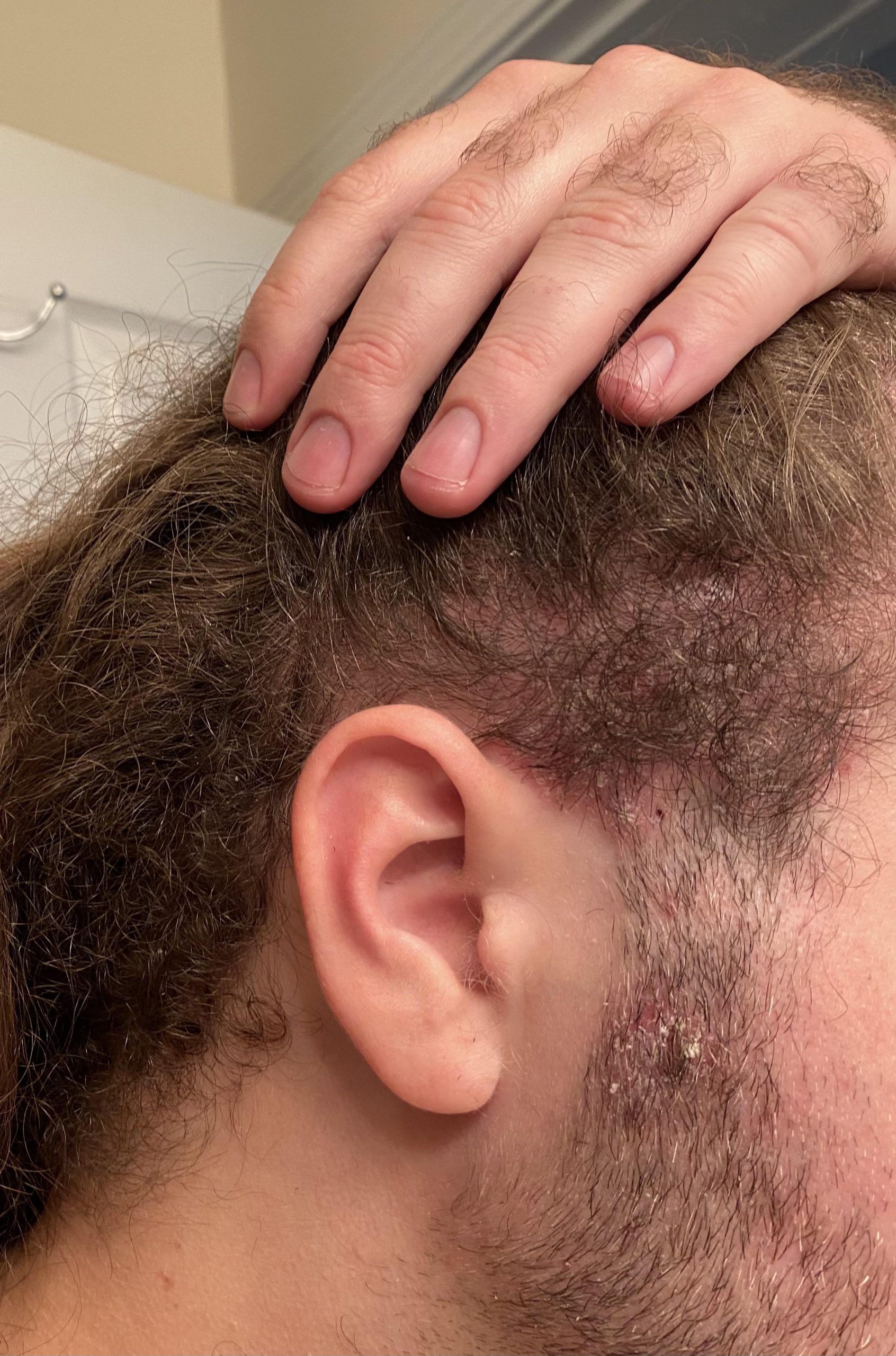
Image Source: Reddit
Menopause-induced psoriasis is a subtype of psoriasis that develops or worsens in response to hormonal changes during menopause. Menopause-related hormonal fluctuations can trigger inflammation and exacerbate psoriasis symptoms, leading to flare-ups and increased disease activity.
45. Lesions that develop in response to hormonal changes during puberty (puberty-induced psoriasis)
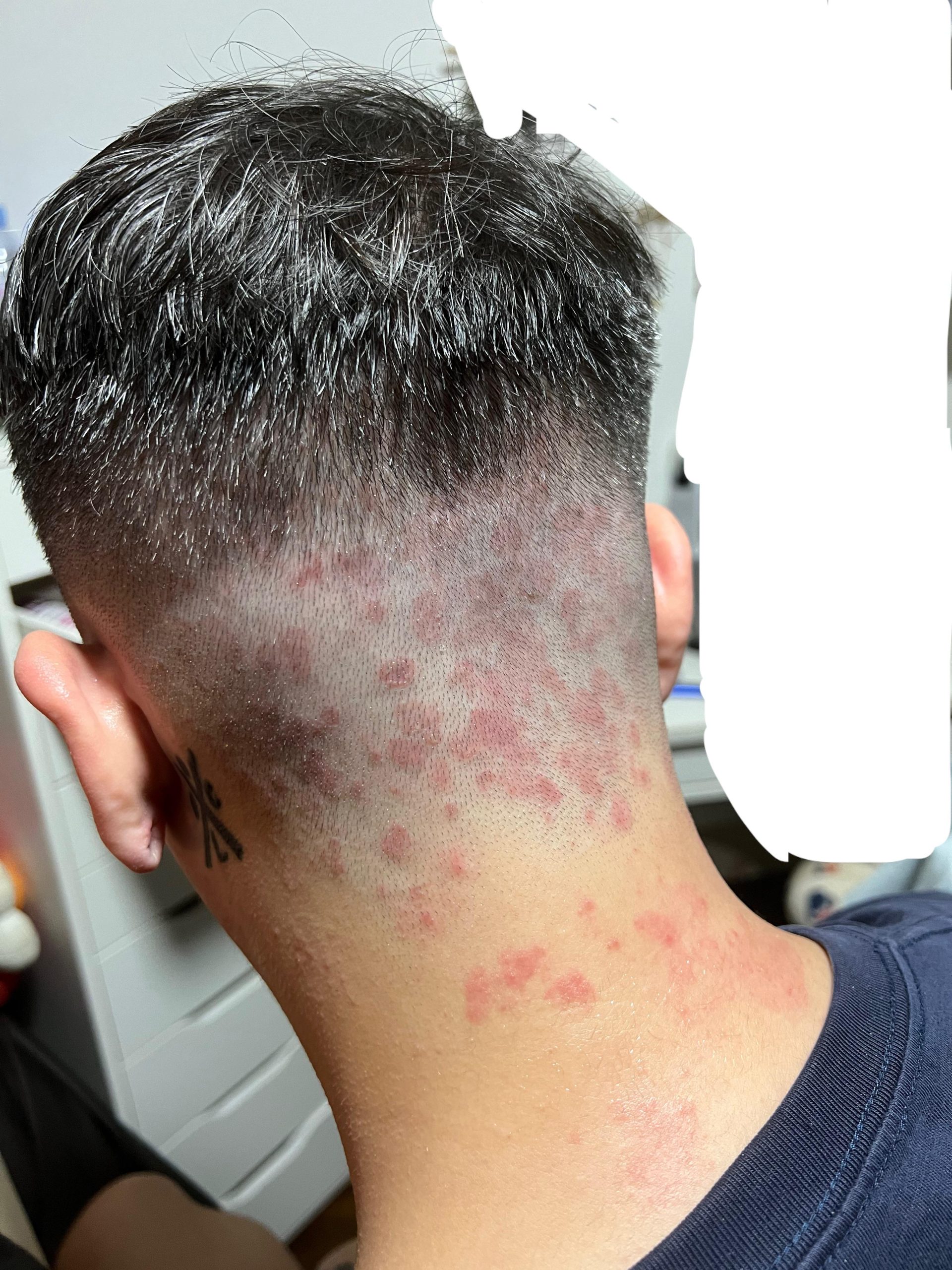
Image Source: Reddit
Puberty-induced psoriasis is a subtype of psoriasis that develops or worsens in response to hormonal changes during puberty. Puberty-related hormonal fluctuations can trigger inflammation and exacerbate psoriasis symptoms, leading to flare-ups and increased disease activity.
46. Lesions that develop in response to hormonal changes during breastfeeding (breastfeeding-induced psoriasis)
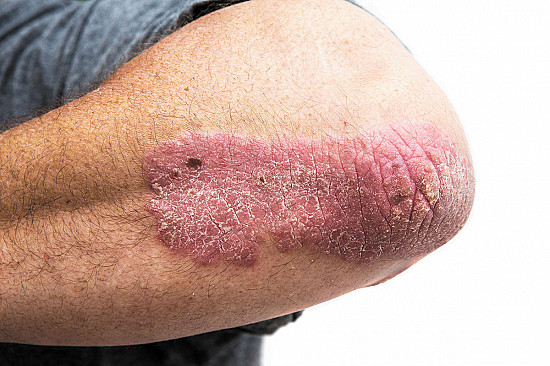
Image Source: Reddit
Breastfeeding-induced psoriasis is a subtype of psoriasis that develops or worsens in response to hormonal changes during breastfeeding. Breastfeeding-related hormonal fluctuations can trigger inflammation and exacerbate psoriasis symptoms, leading to flare-ups and increased disease activity.
47. Lesions that develop in response to hormonal changes during hormone replacement therapy (HRT-induced psoriasis)

Image Source: Reddit
Hormone replacement therapy (HRT)-induced psoriasis is a subtype of psoriasis that develops or worsens in response to hormonal changes during HRT. HRT-related hormonal fluctuations can trigger inflammation and exacerbate psoriasis symptoms, leading to flare-ups and increased disease activity.
48. Lesions that develop in response to hormonal changes during steroid therapy (steroid-induced psoriasis)
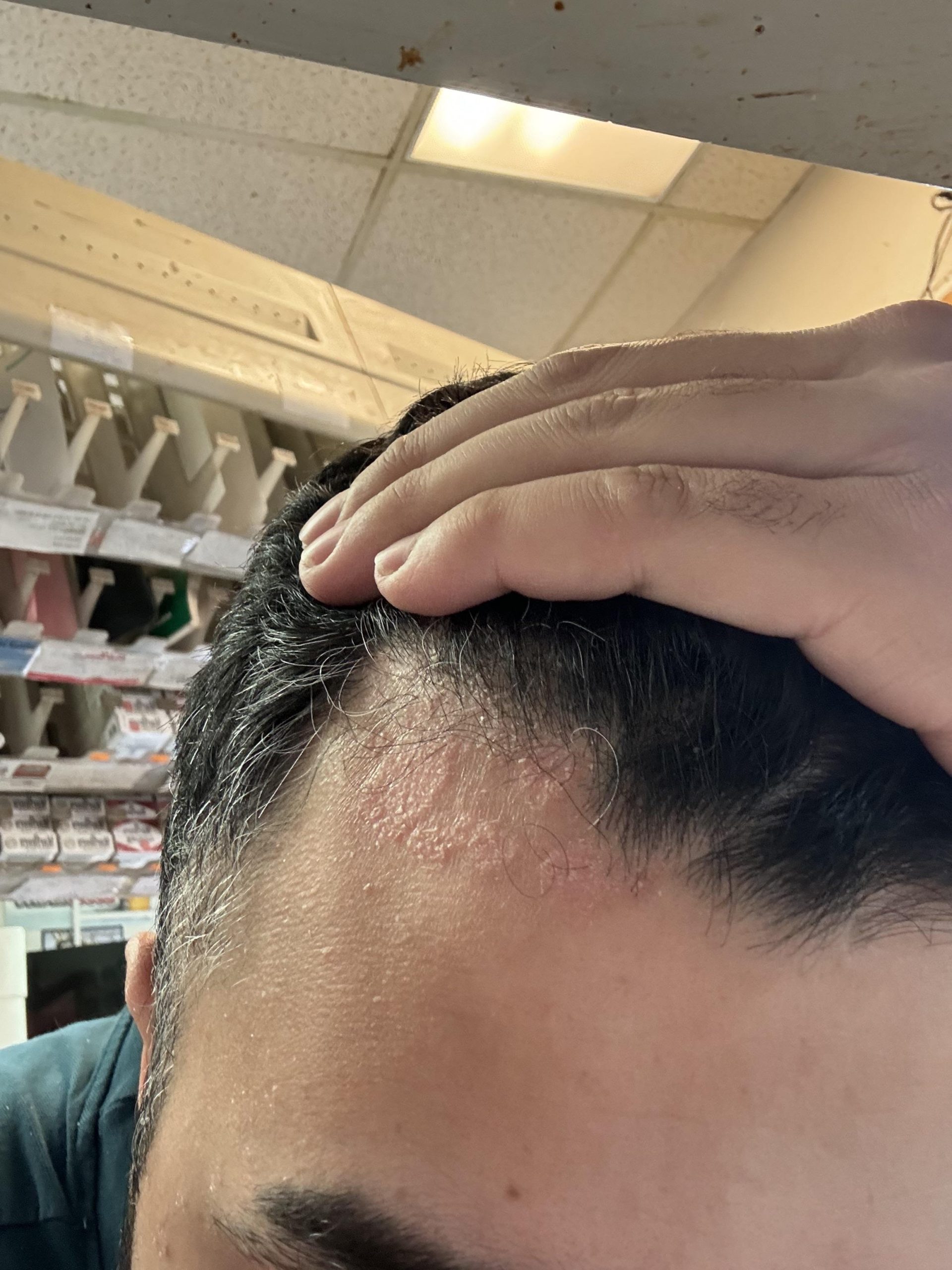
Image Source: Reddit
Steroid-induced psoriasis is a subtype of psoriasis that develops or worsens in response to hormonal changes during steroid therapy. Steroid-related hormonal fluctuations can trigger inflammation and exacerbate psoriasis symptoms, leading to flare-ups and increased disease activity.
49. Lesions that develop in response to hormonal changes during chemotherapy (chemotherapy-induced psoriasis)
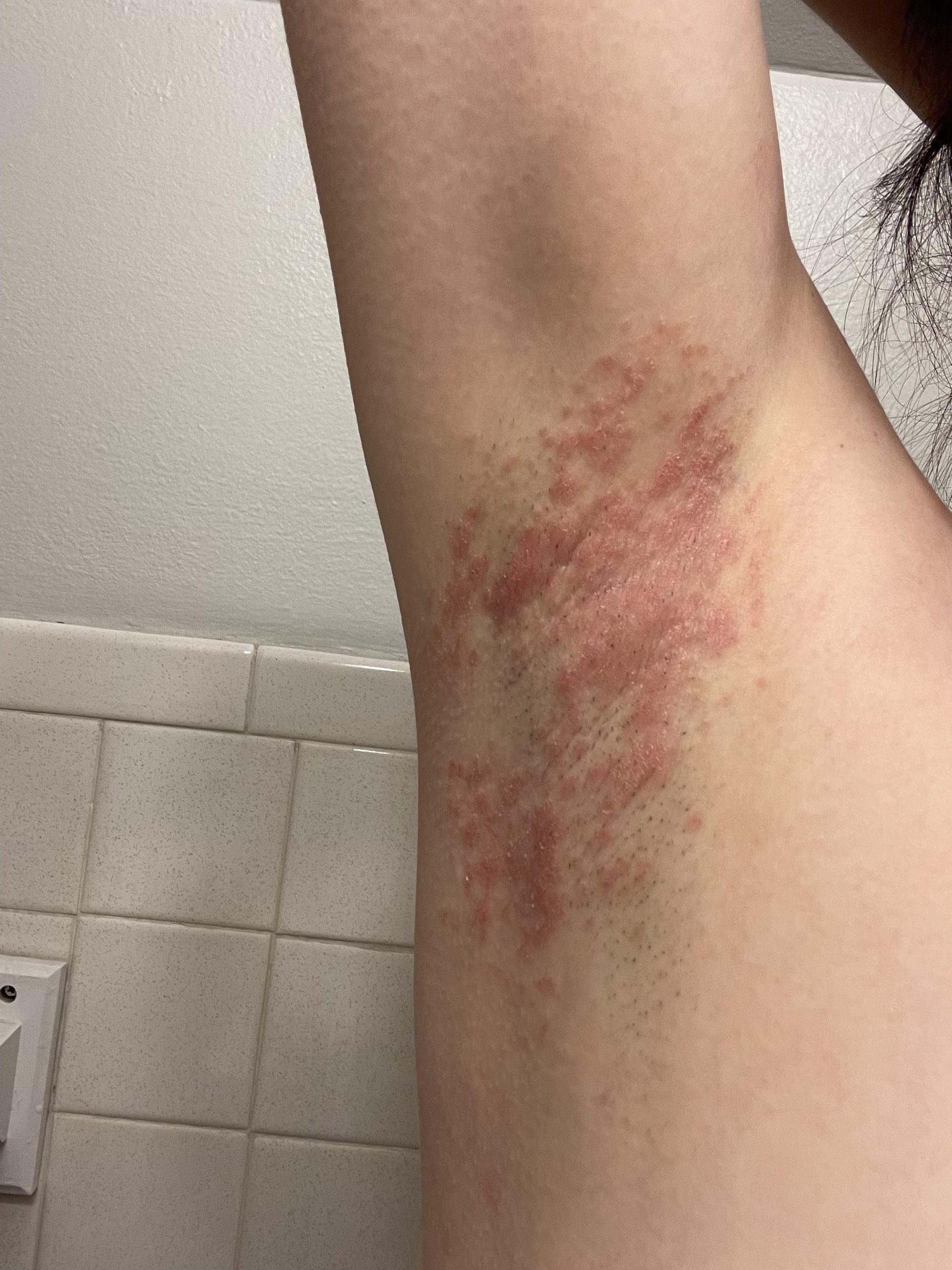
Image Source: Reddit
Chemotherapy-induced psoriasis is a subtype of psoriasis that develops or worsens in response to hormonal changes during chemotherapy. Chemotherapy-related hormonal fluctuations can trigger inflammation and exacerbate psoriasis symptoms, leading to flare-ups and increased disease activity.
50. Lesions that develop in response to hormonal changes during radiation therapy (radiation-induced psoriasis)
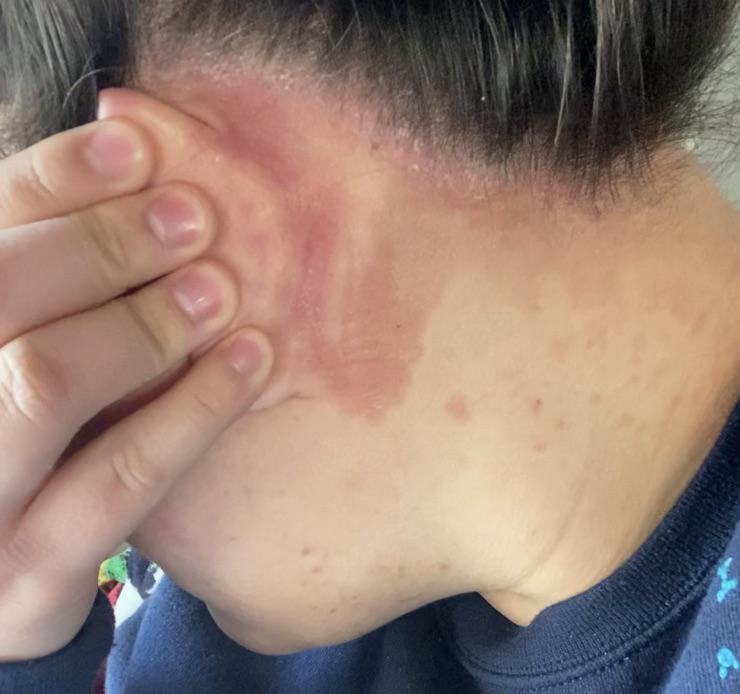
Image Source: Reddit
Radiation-induced psoriasis is a subtype of psoriasis that develops or worsens in response to hormonal changes during radiation therapy. Radiation-related hormonal fluctuations can trigger inflammation and exacerbate psoriasis symptoms, leading to flare-ups and increased disease activity.

















































